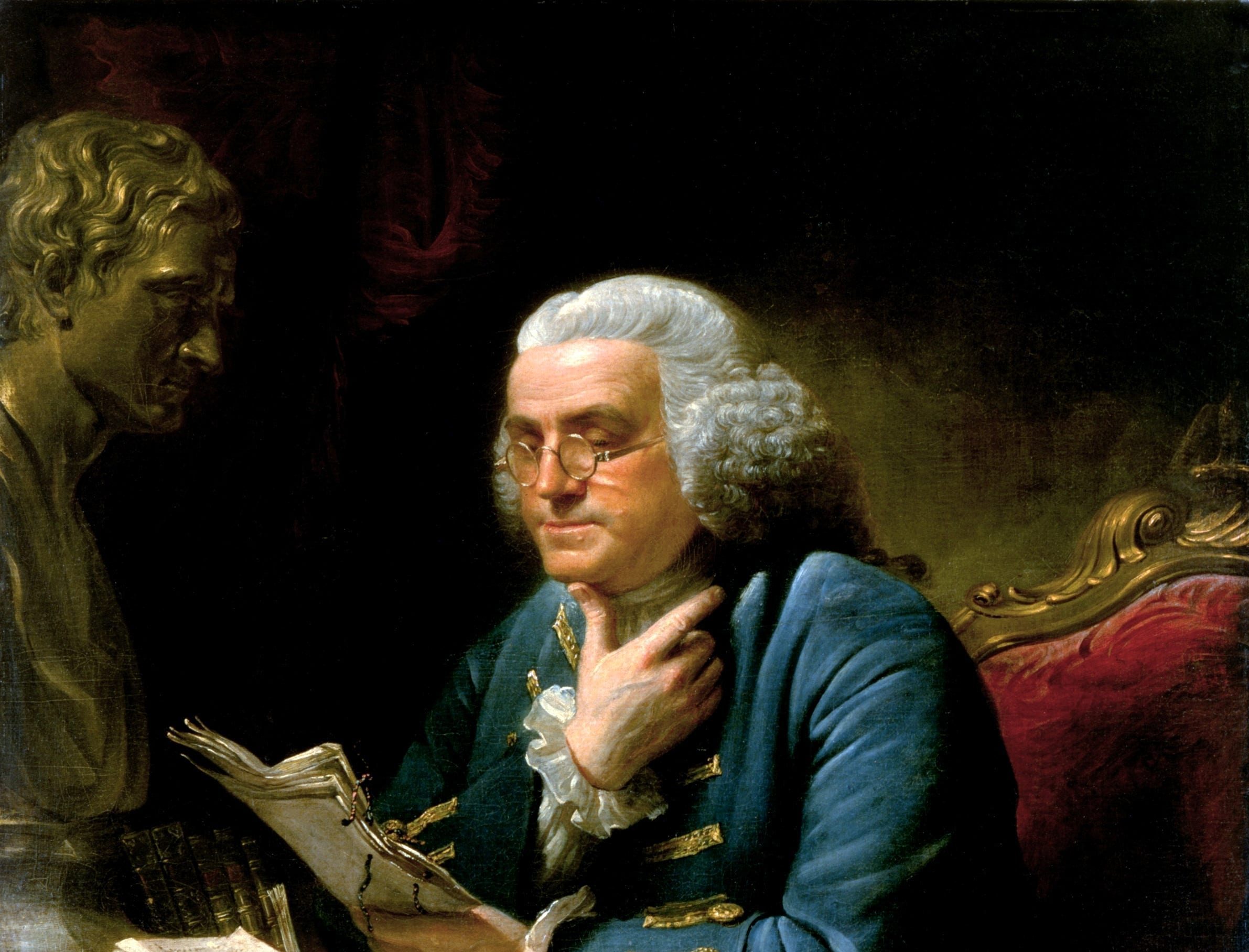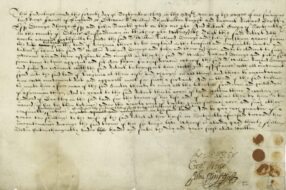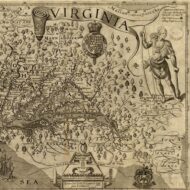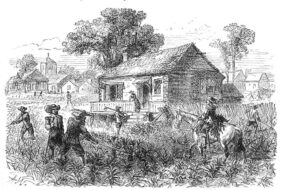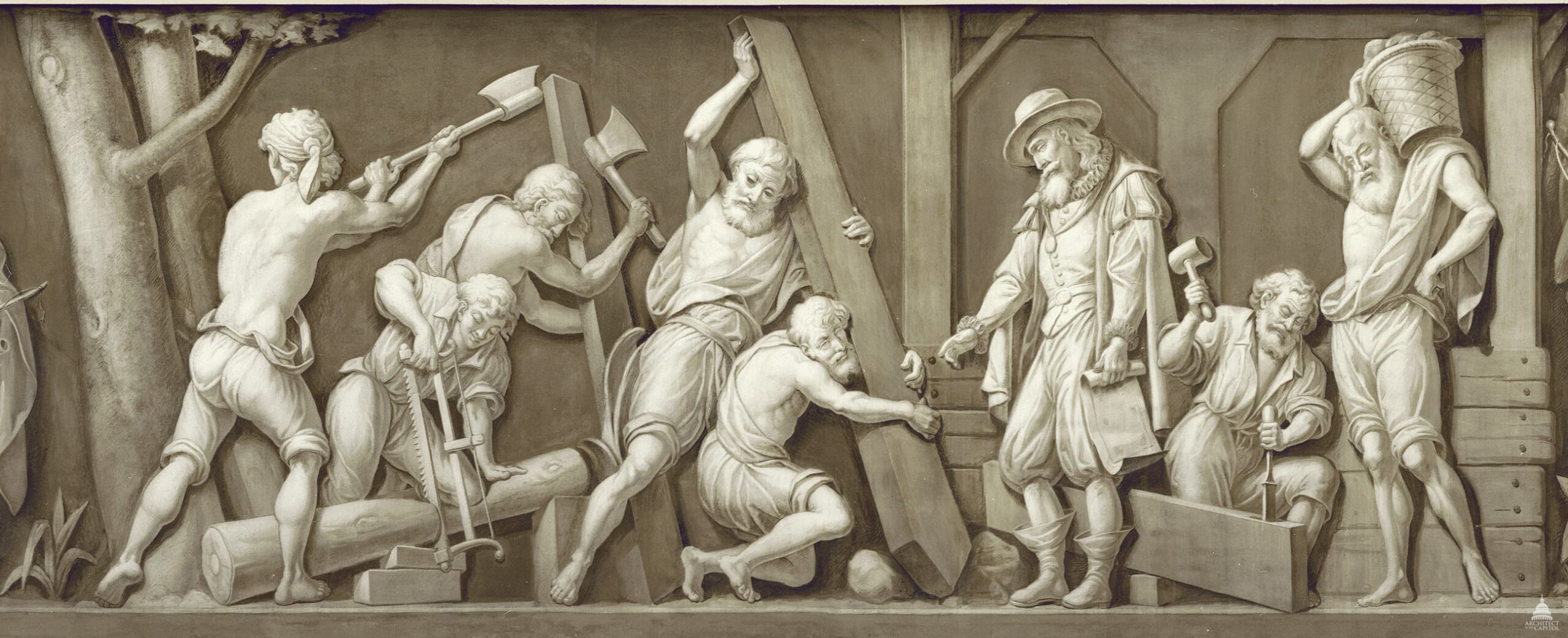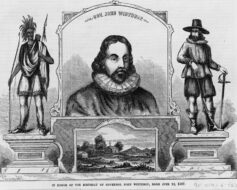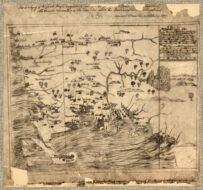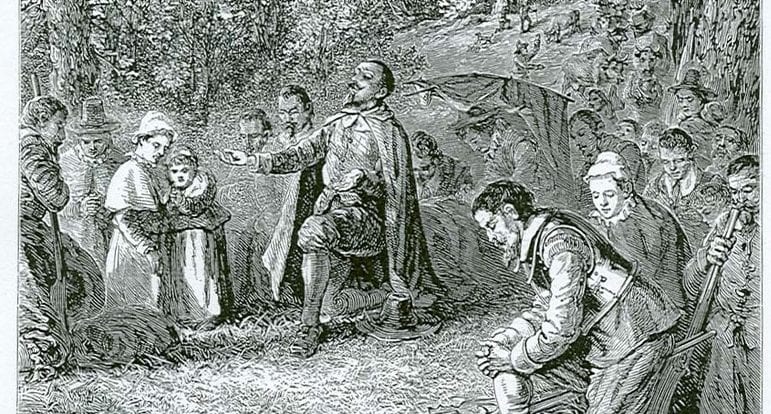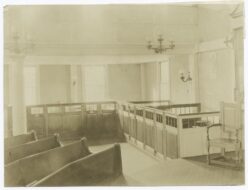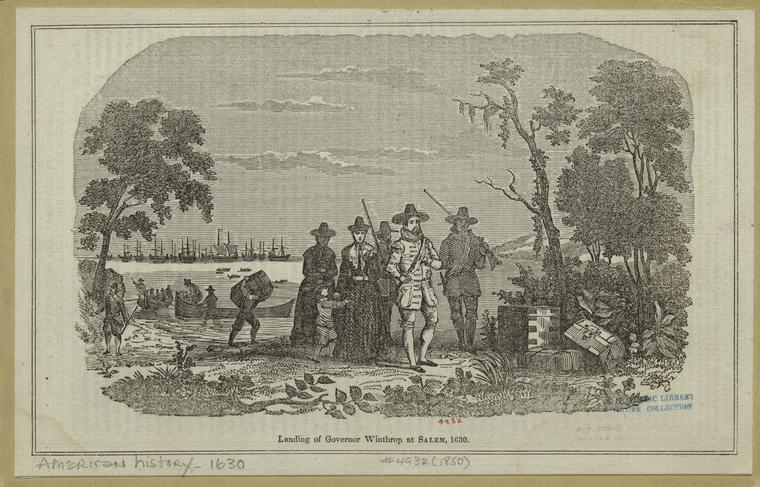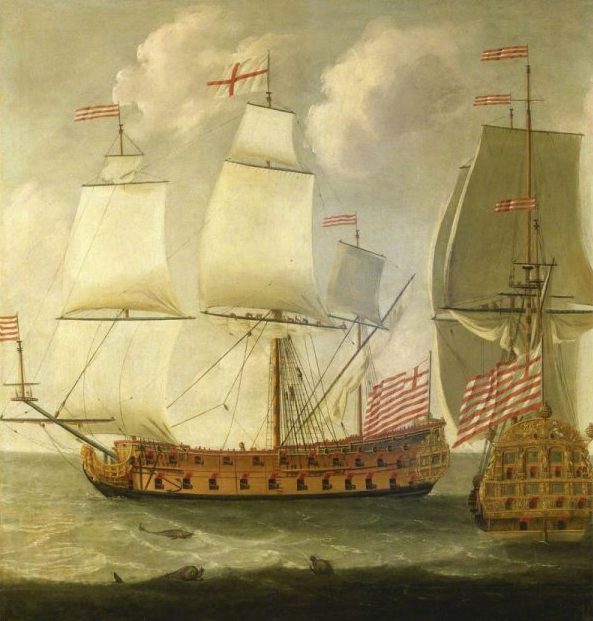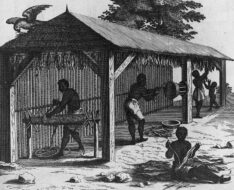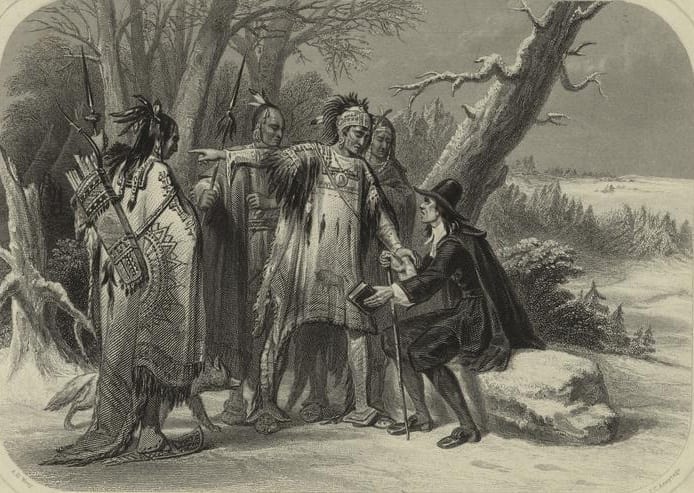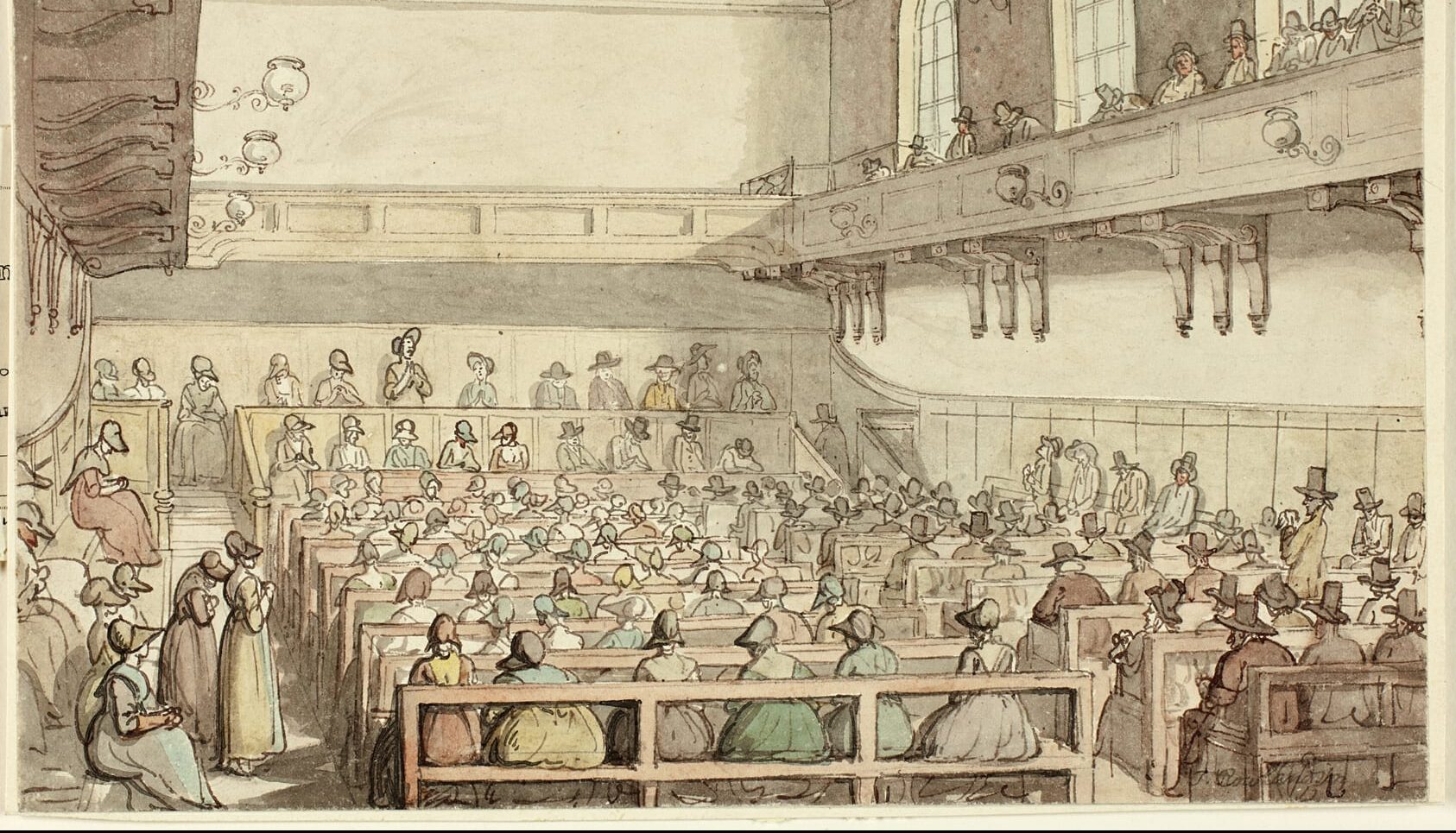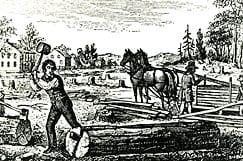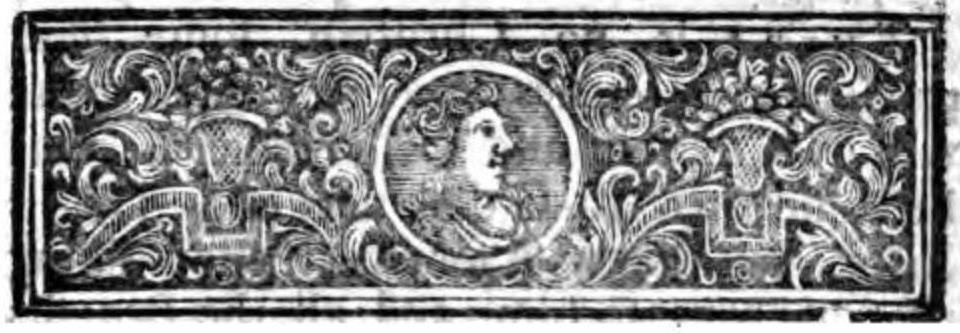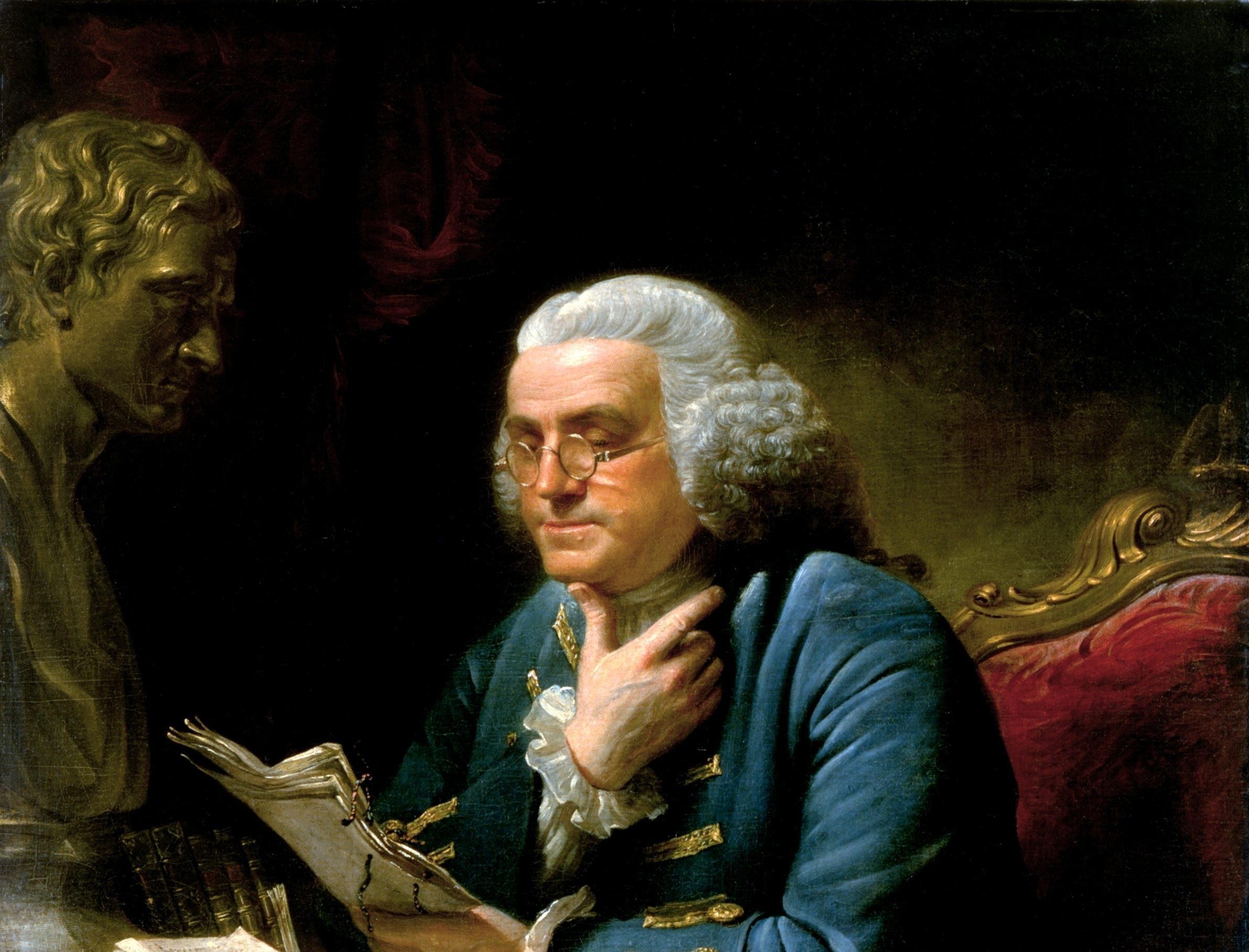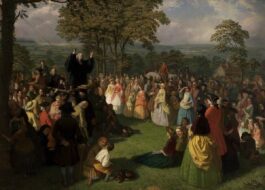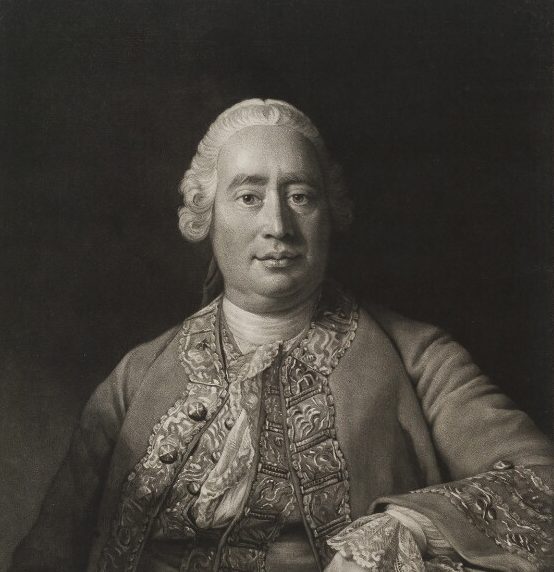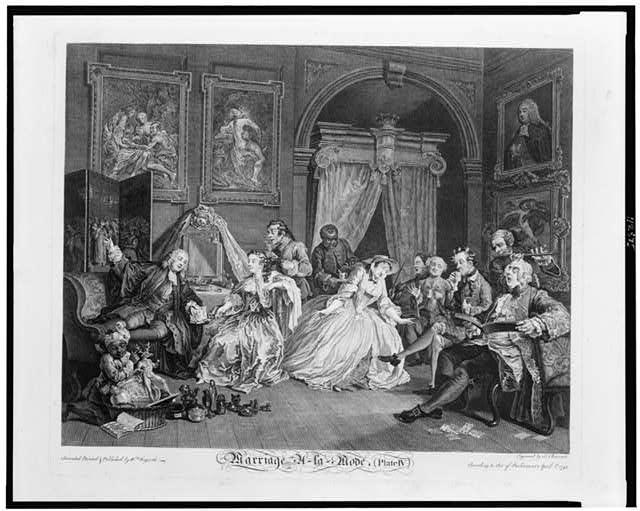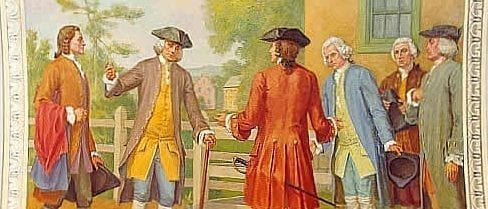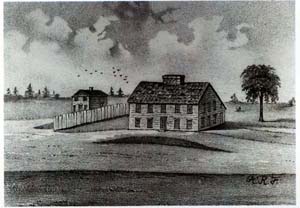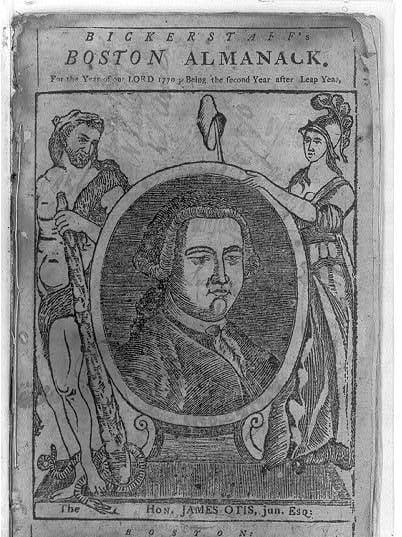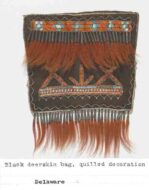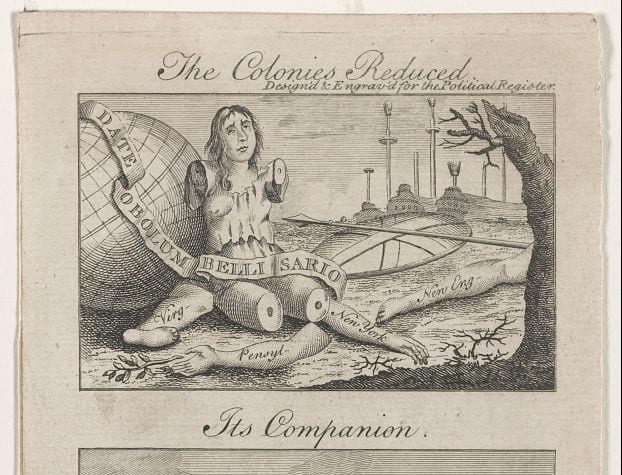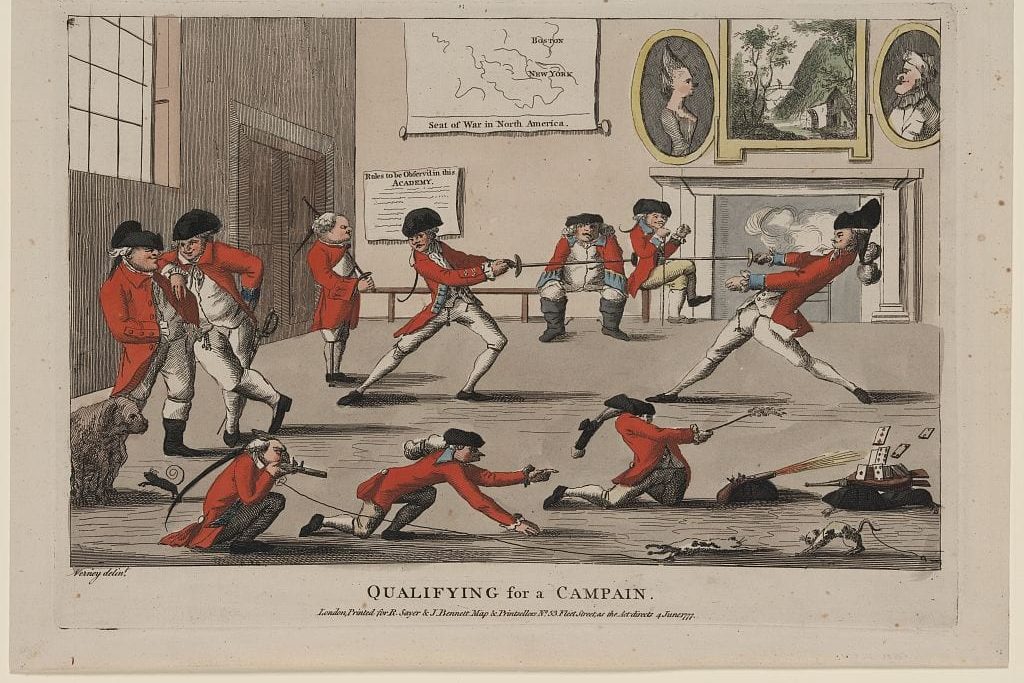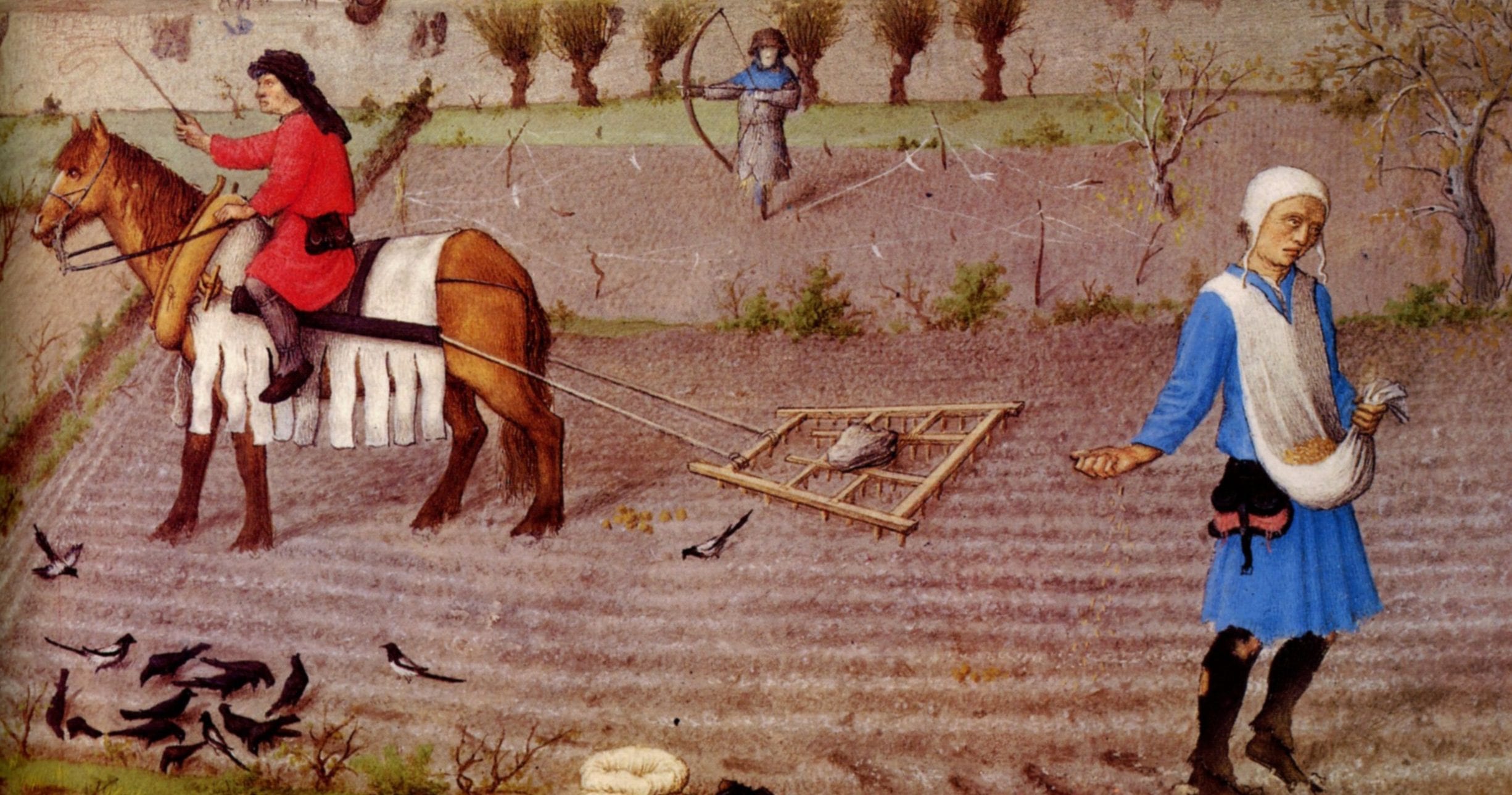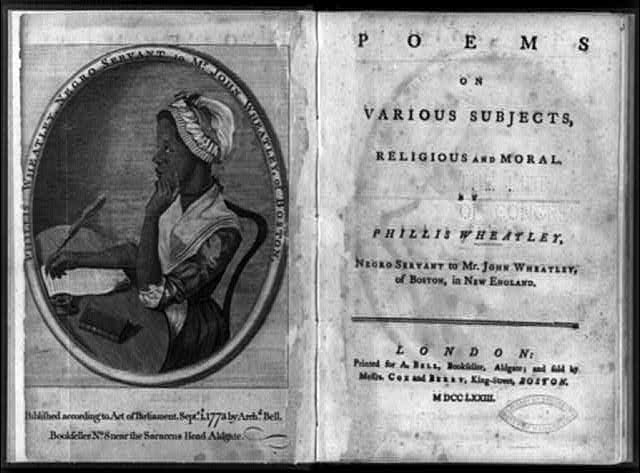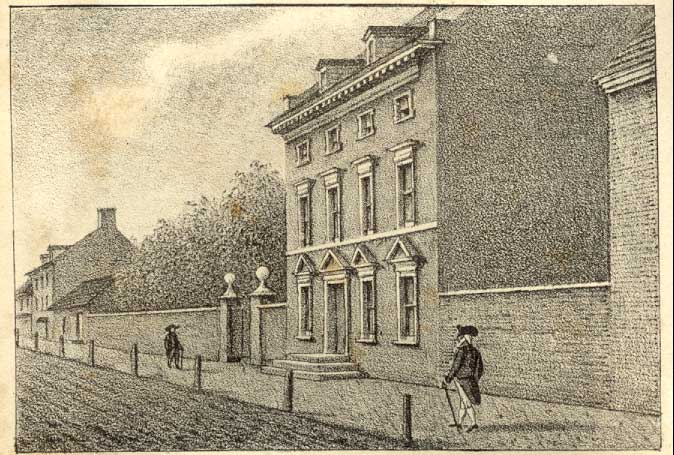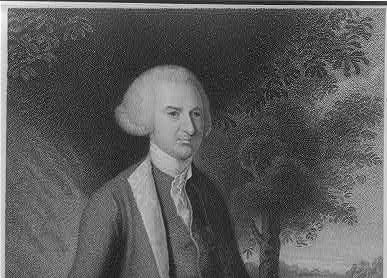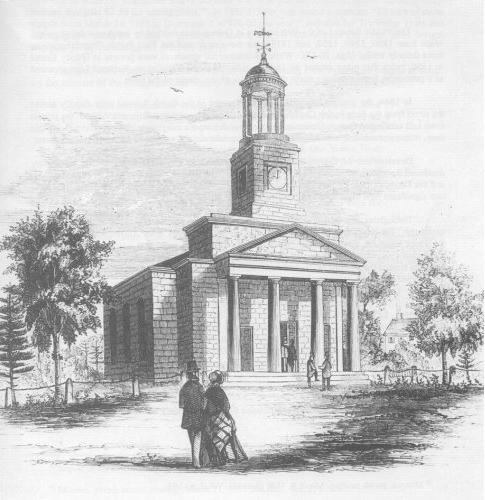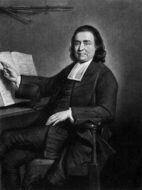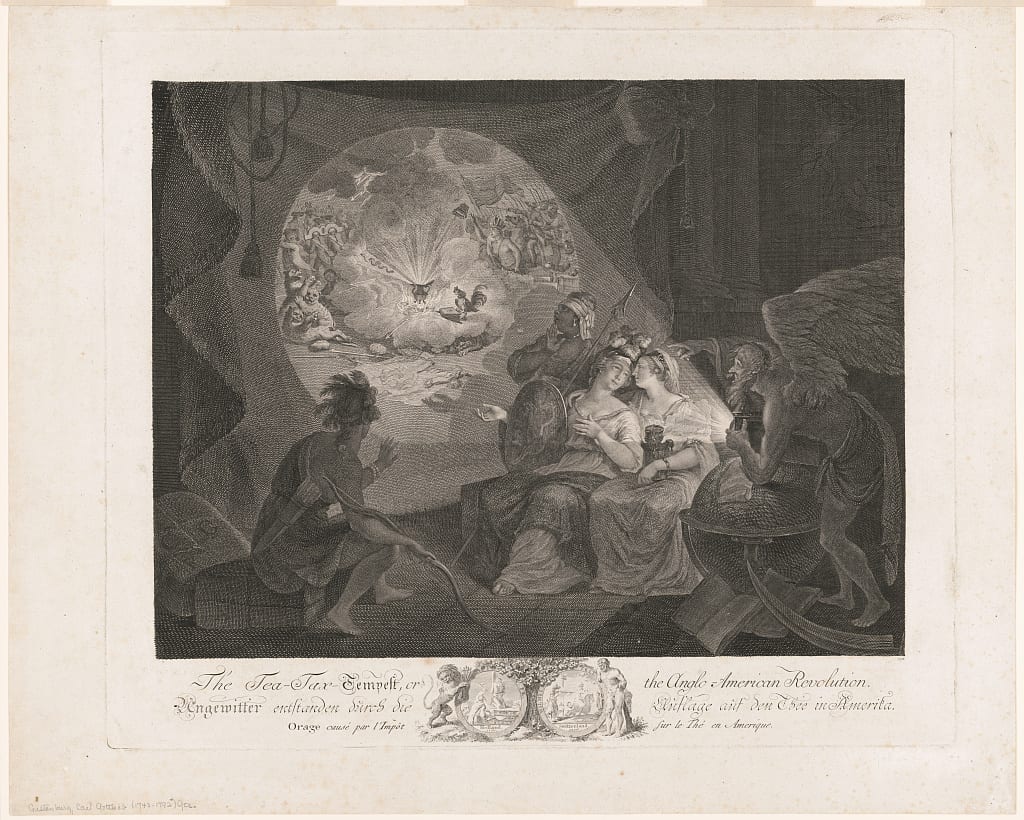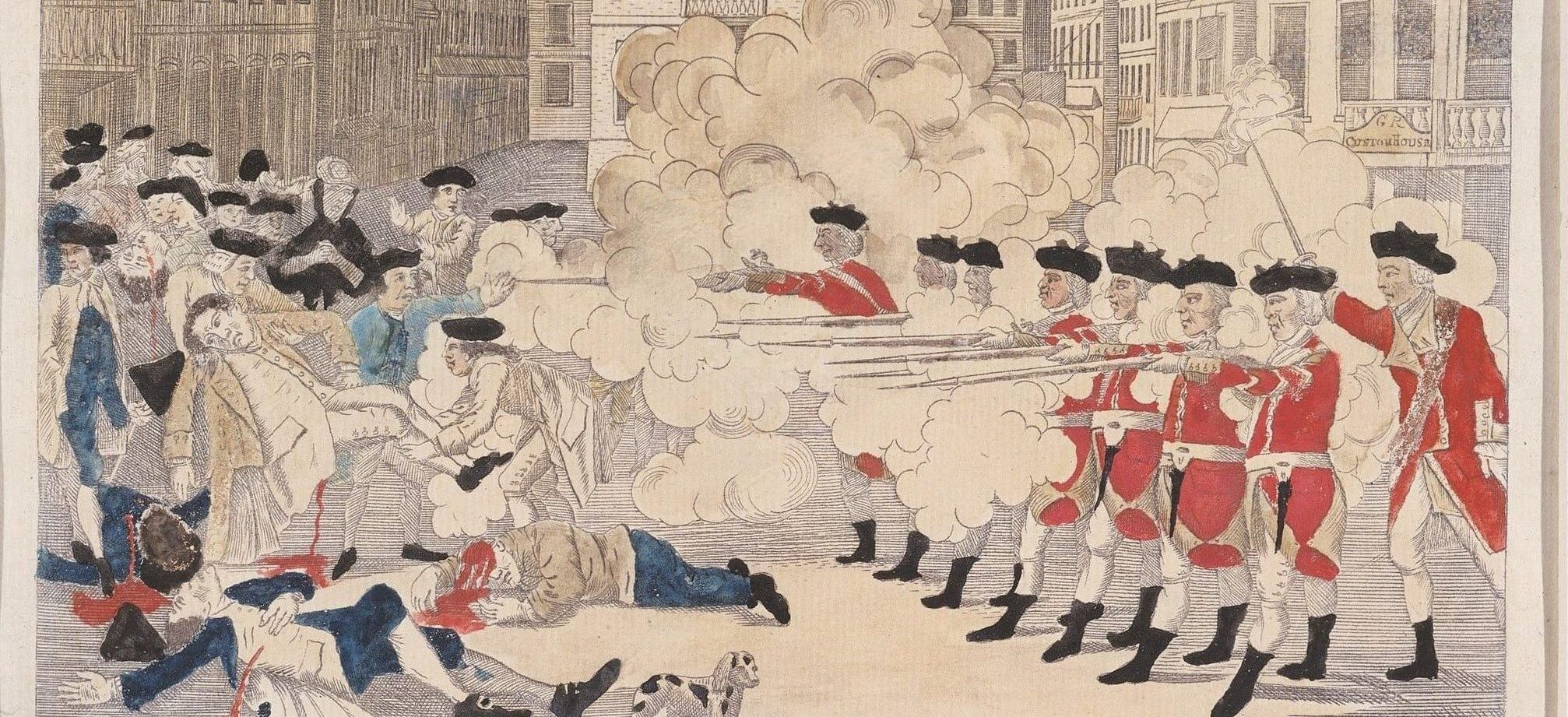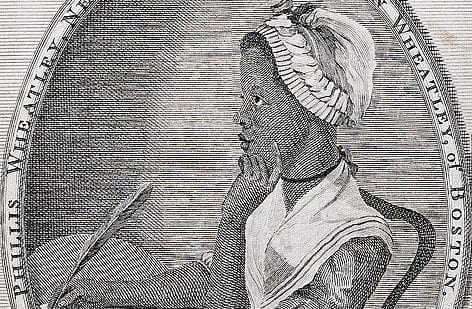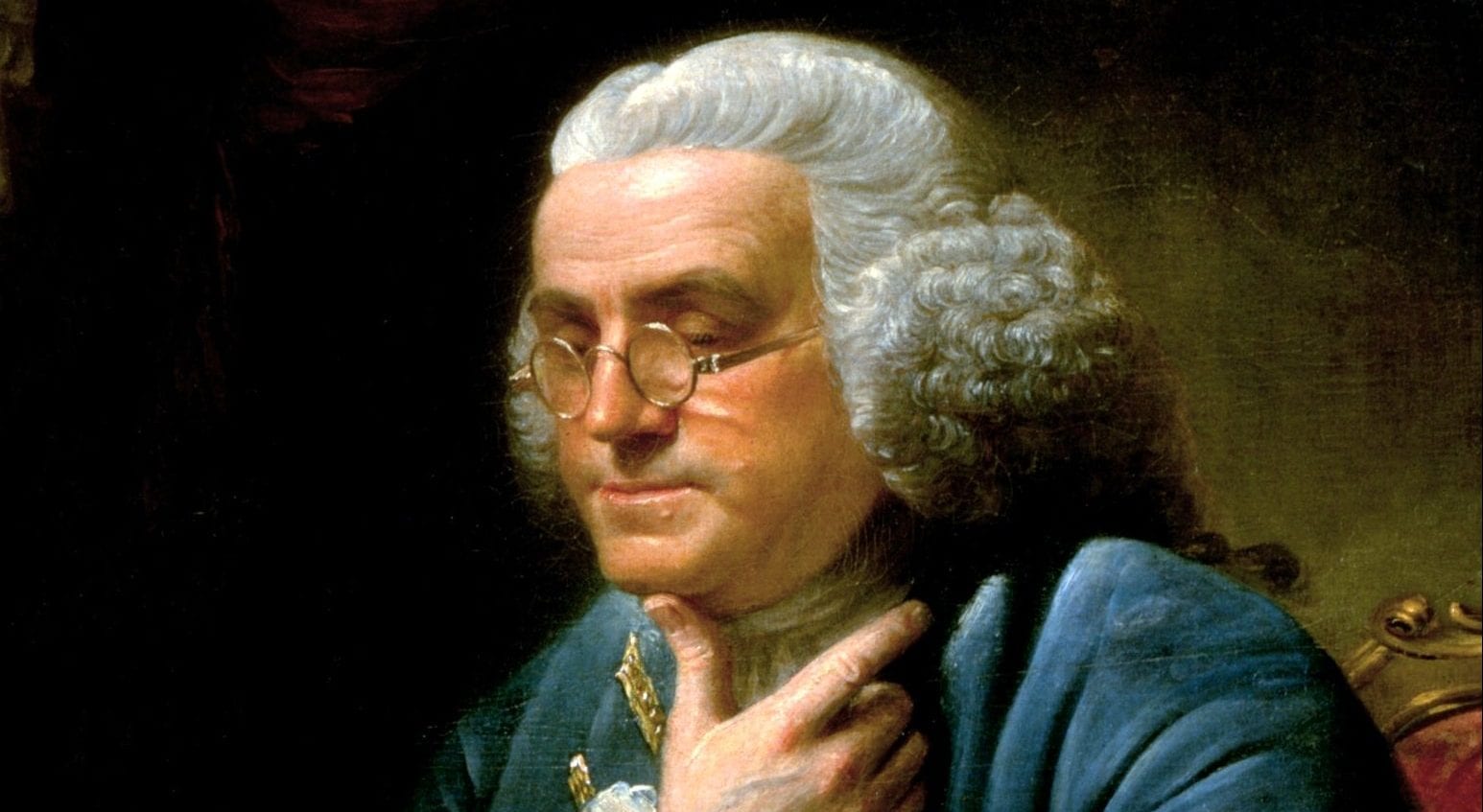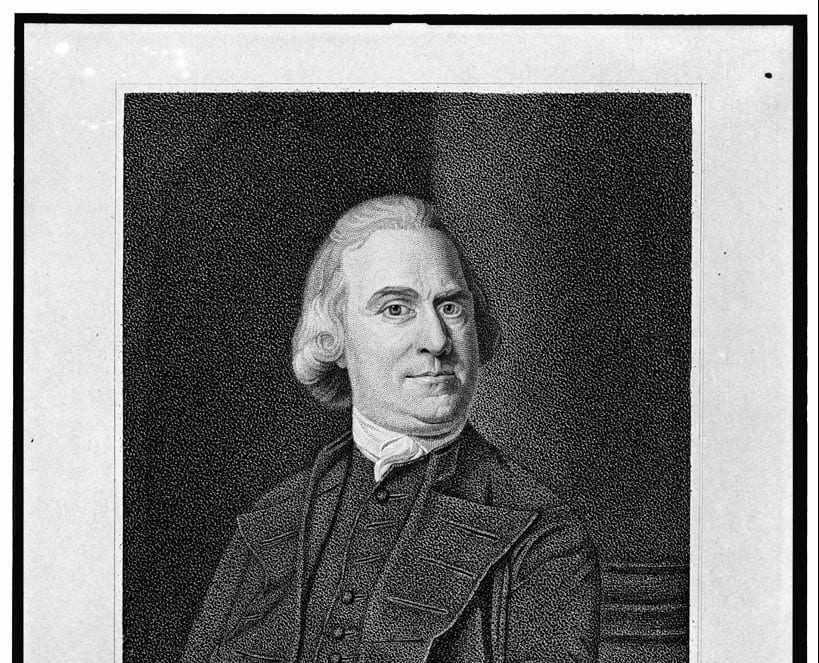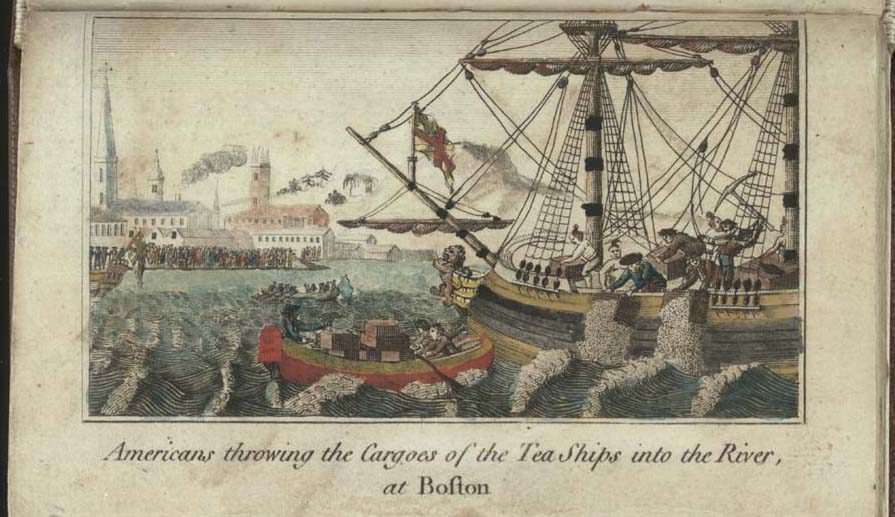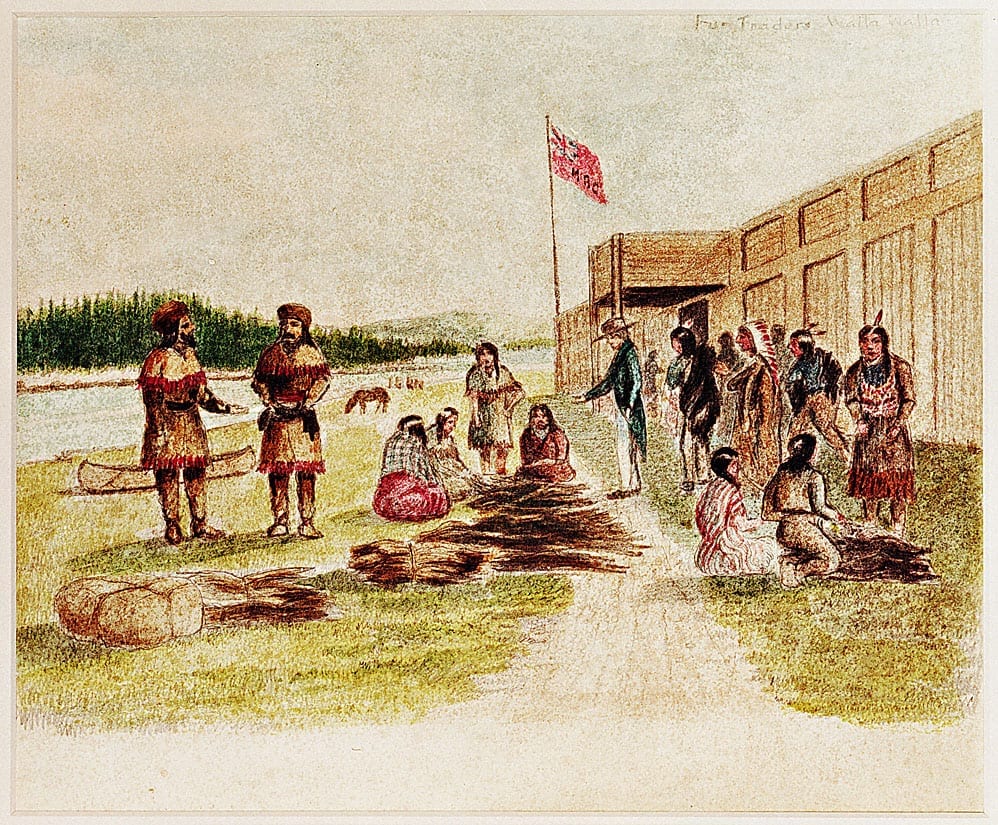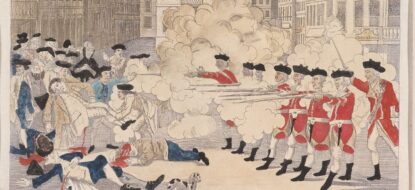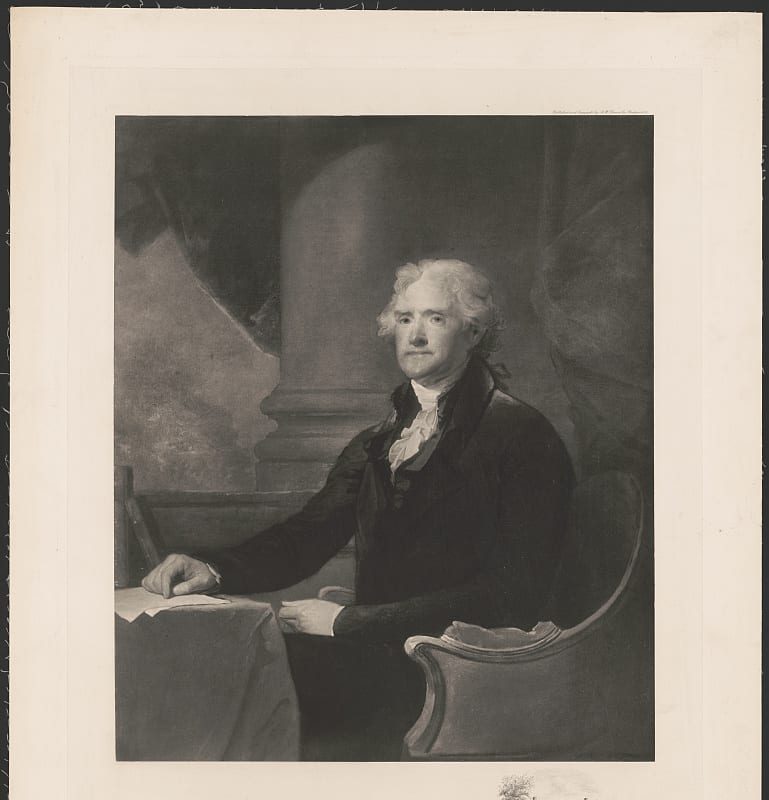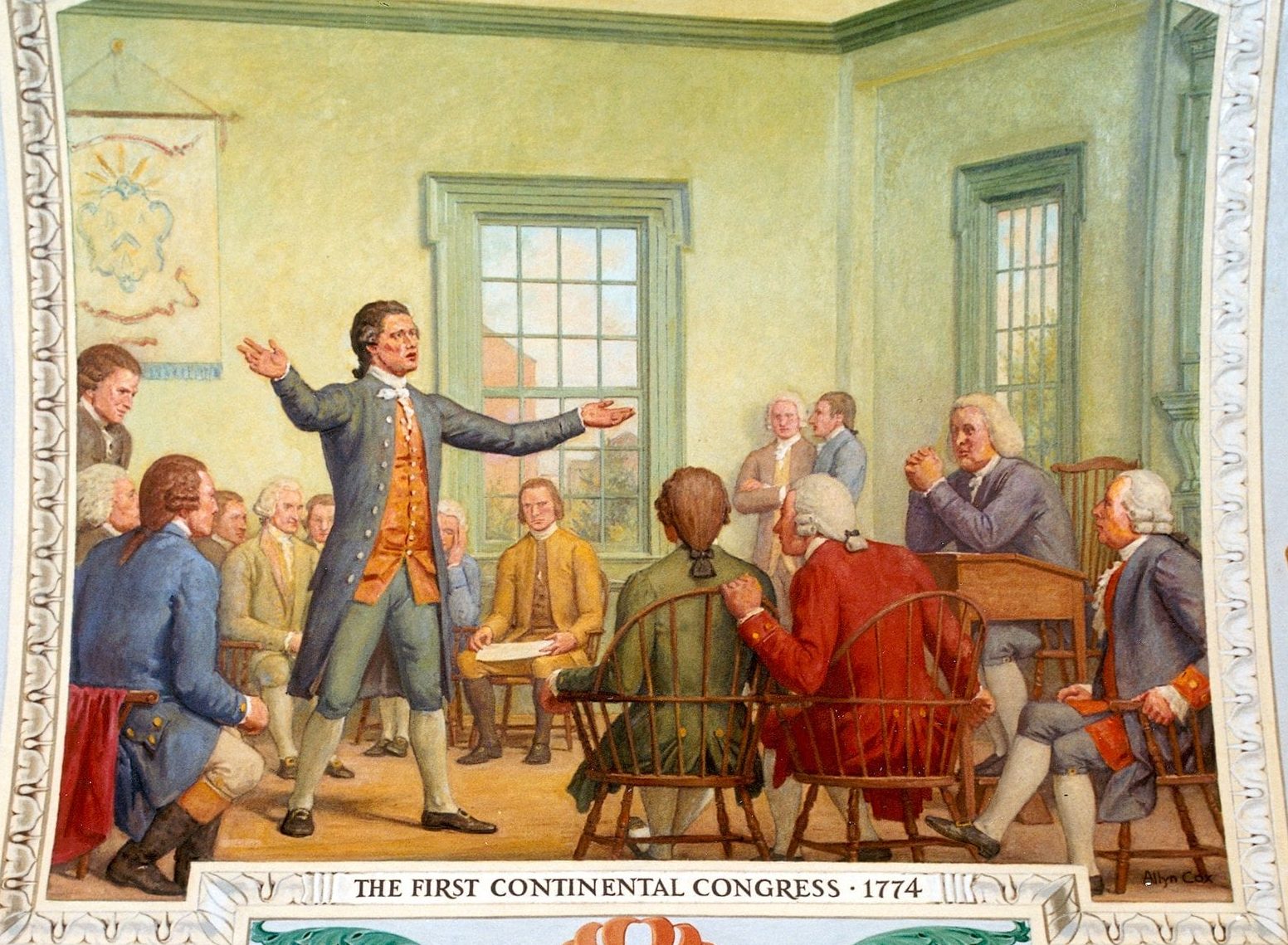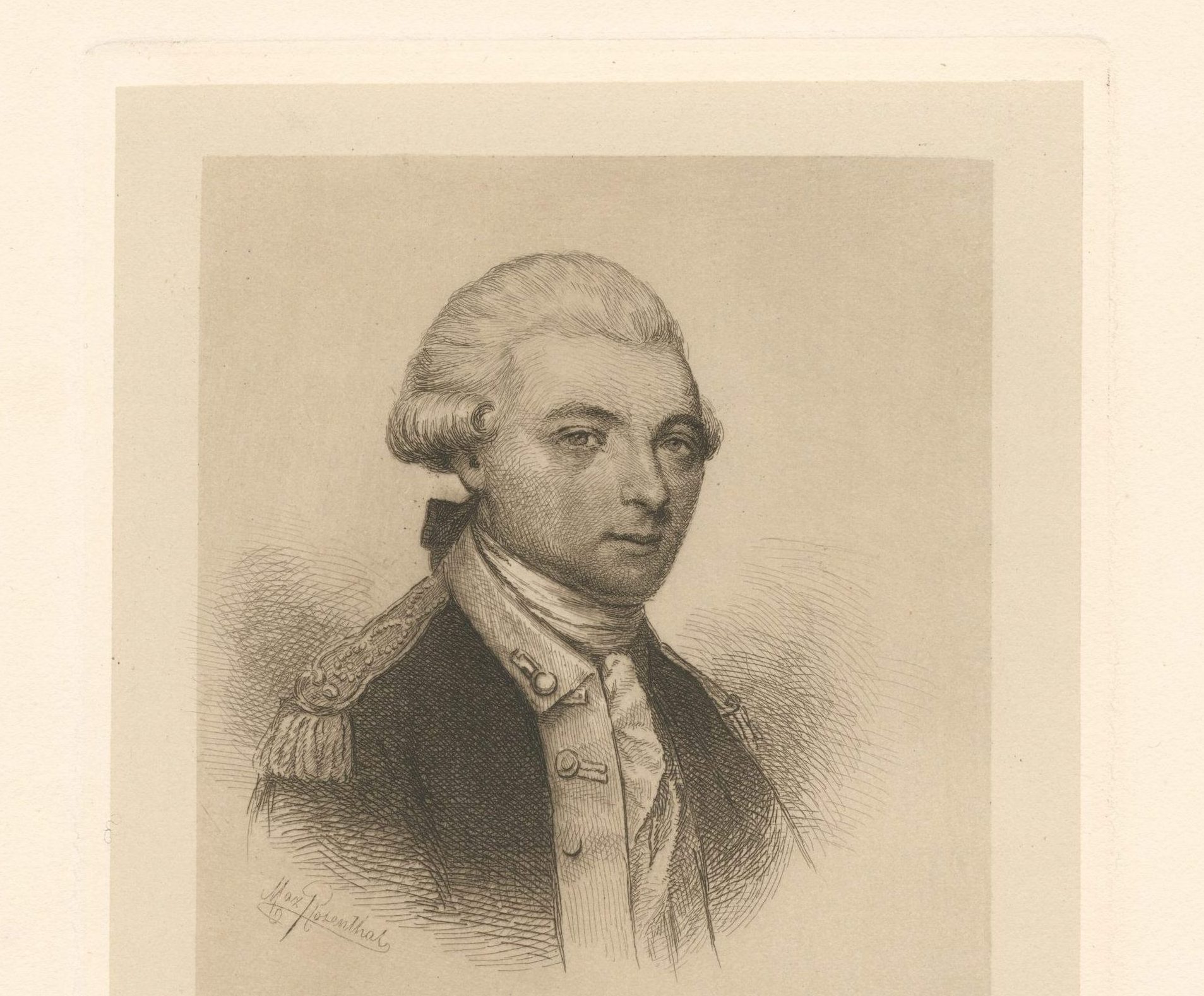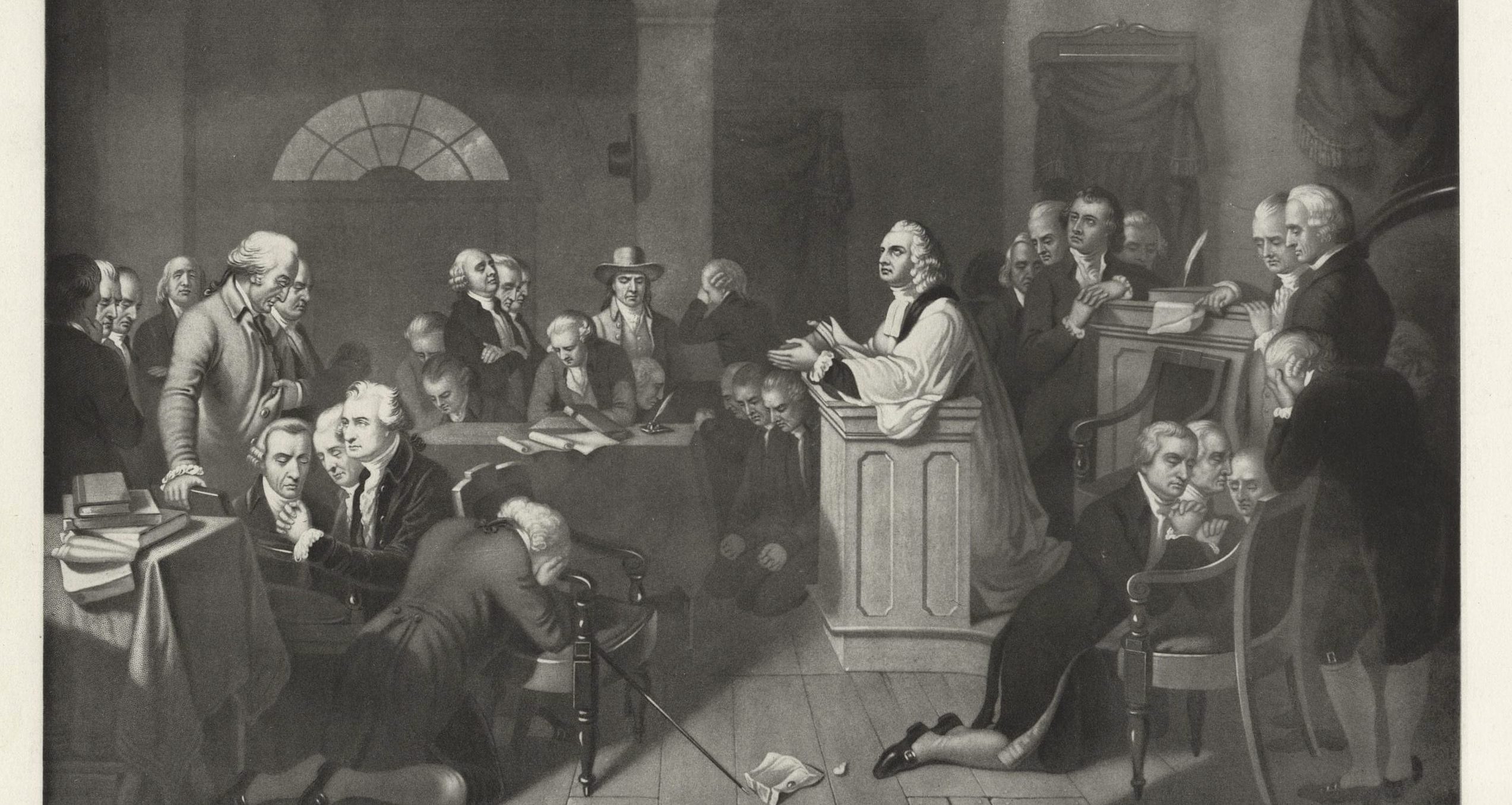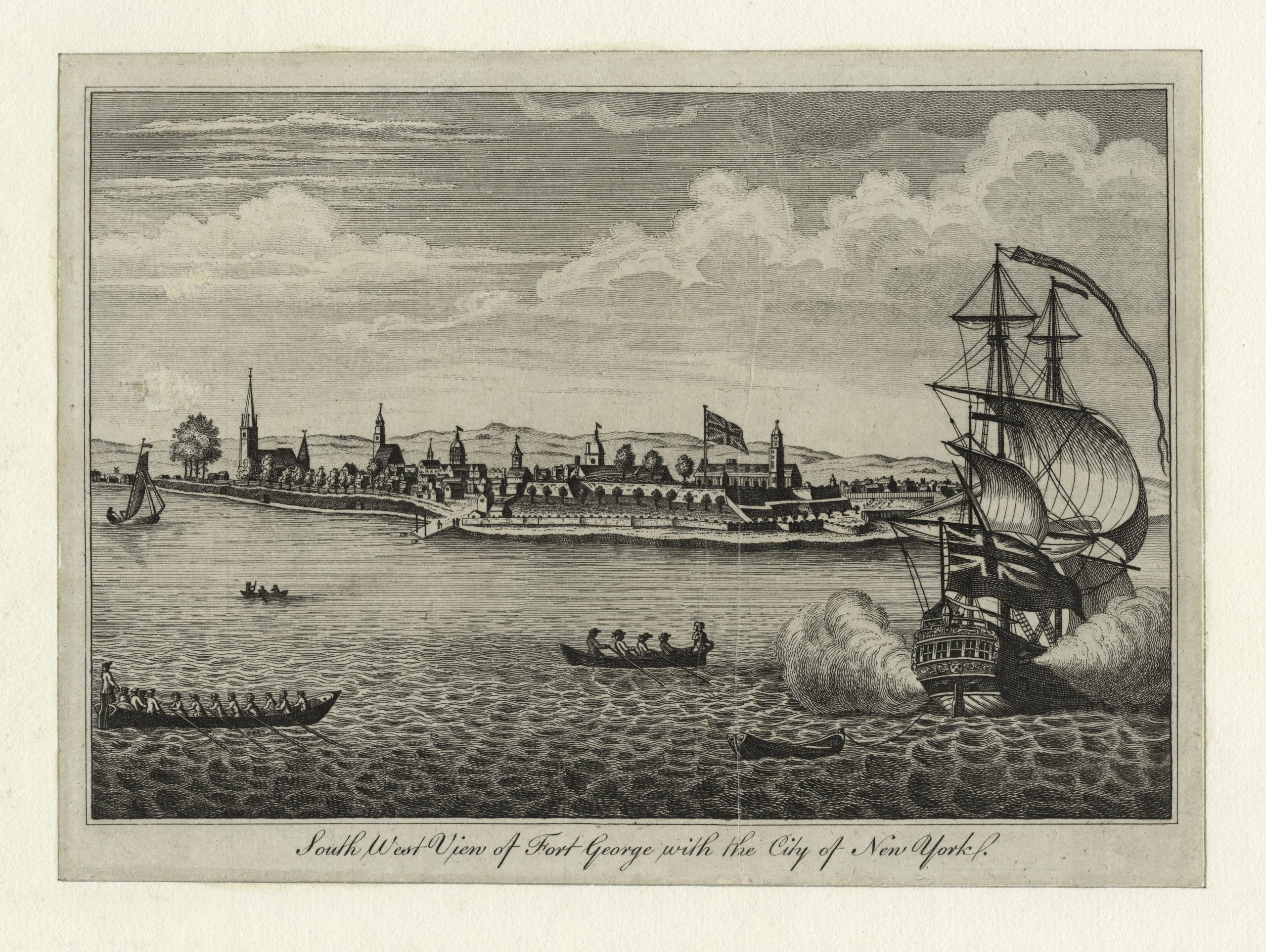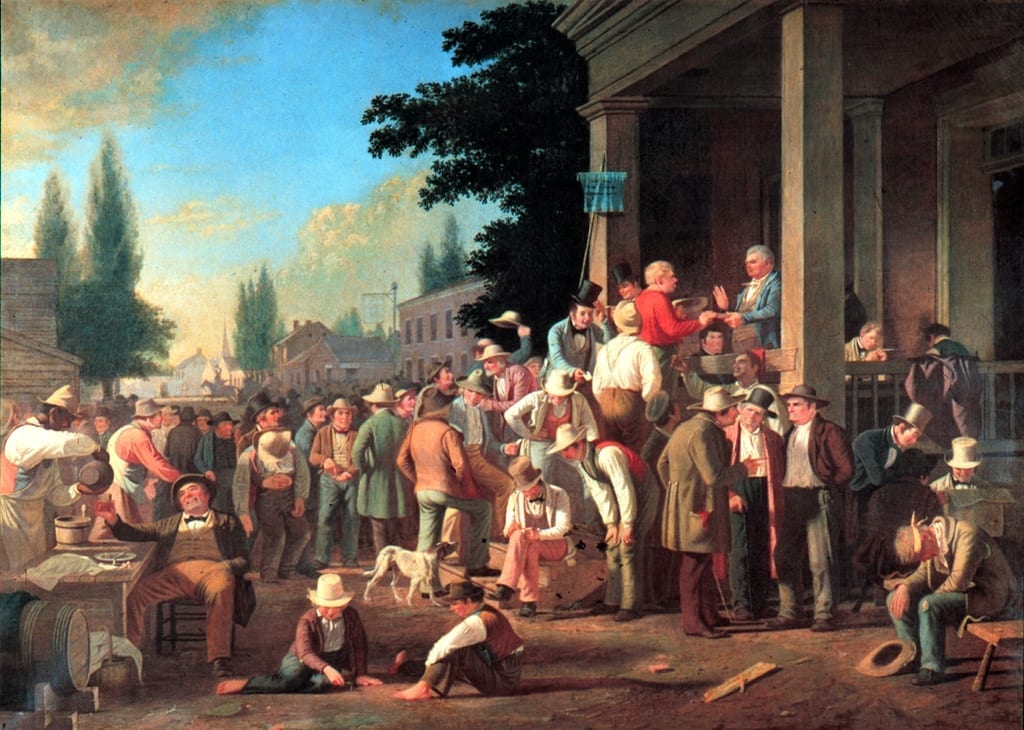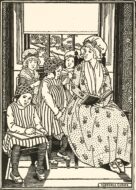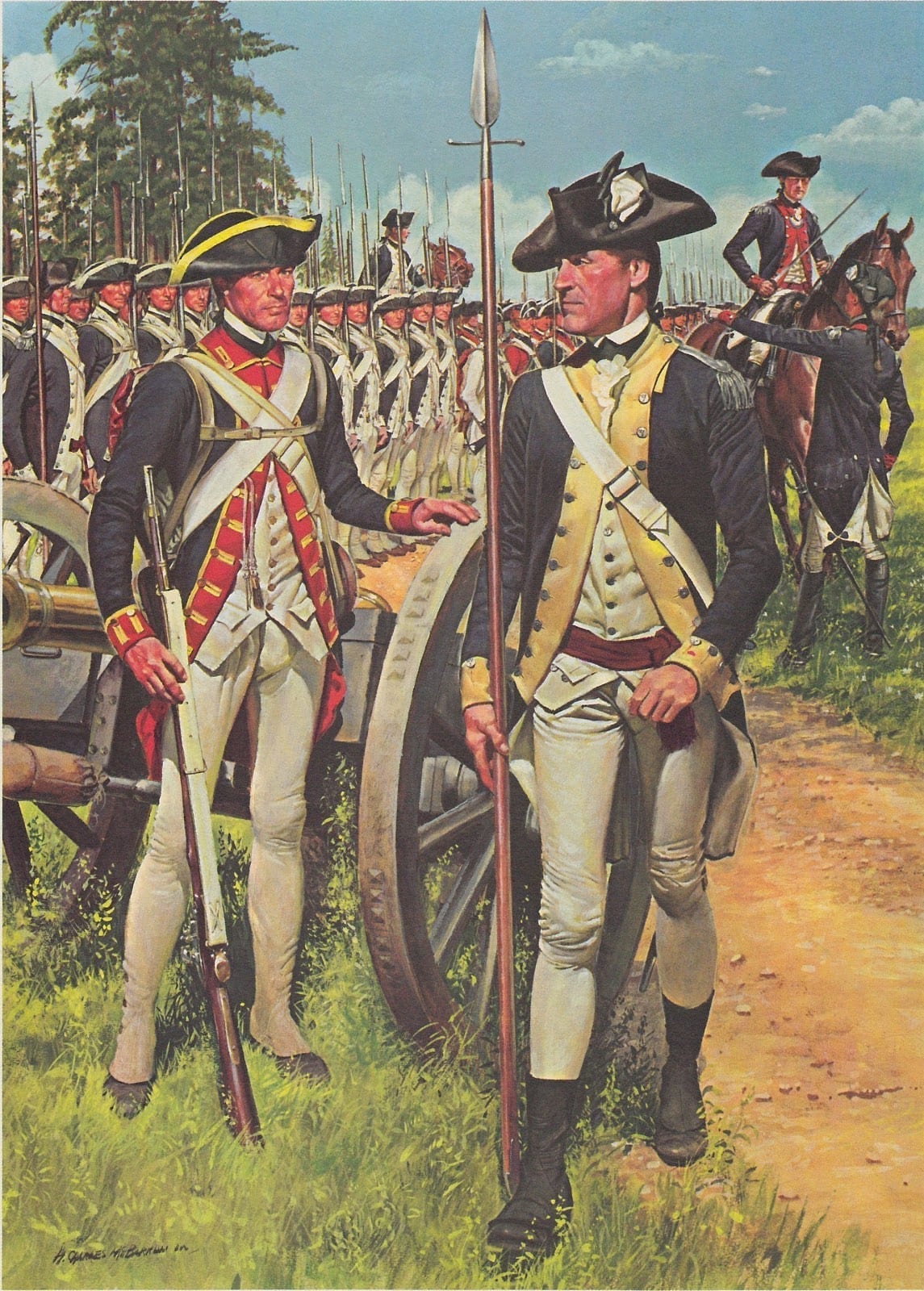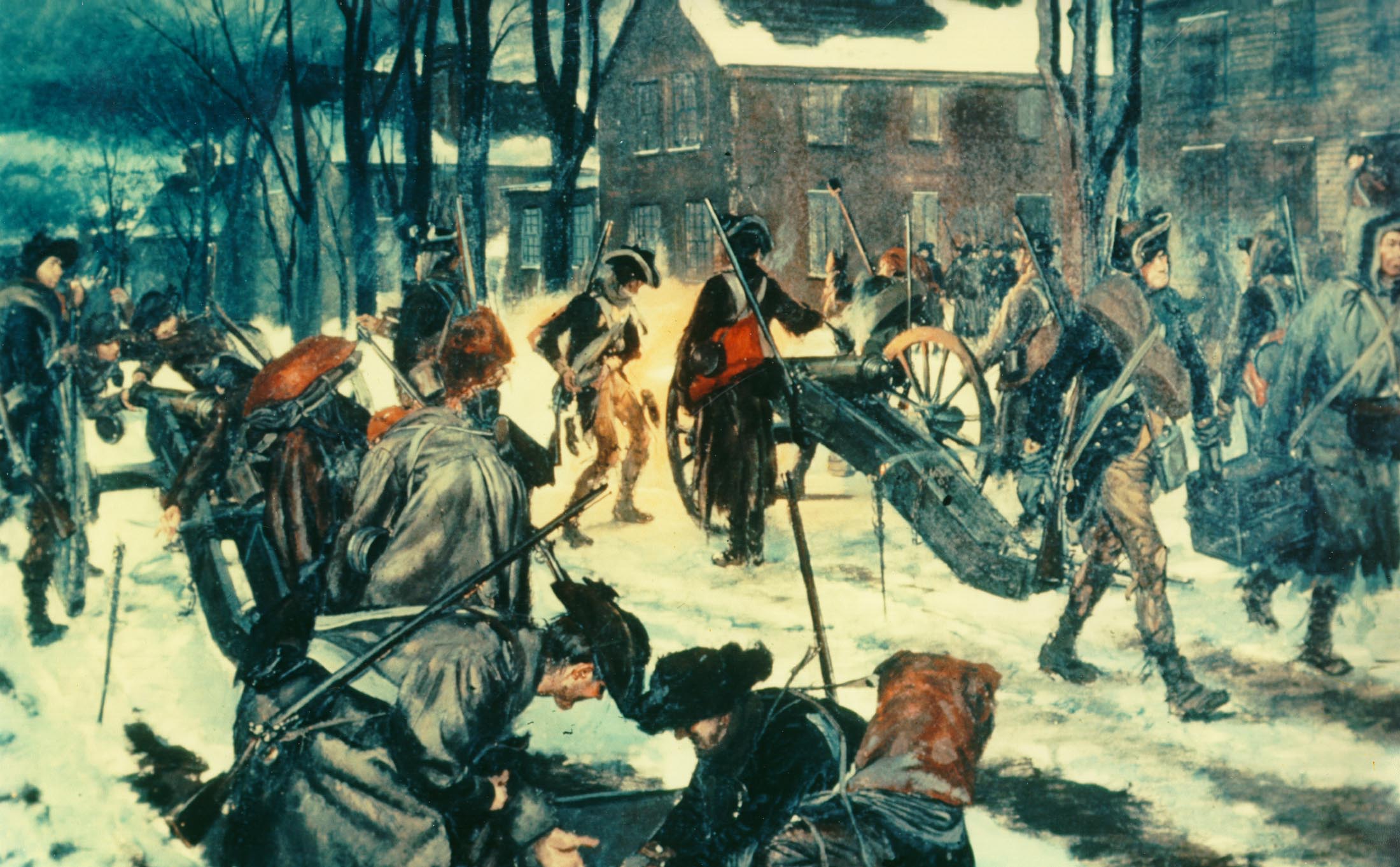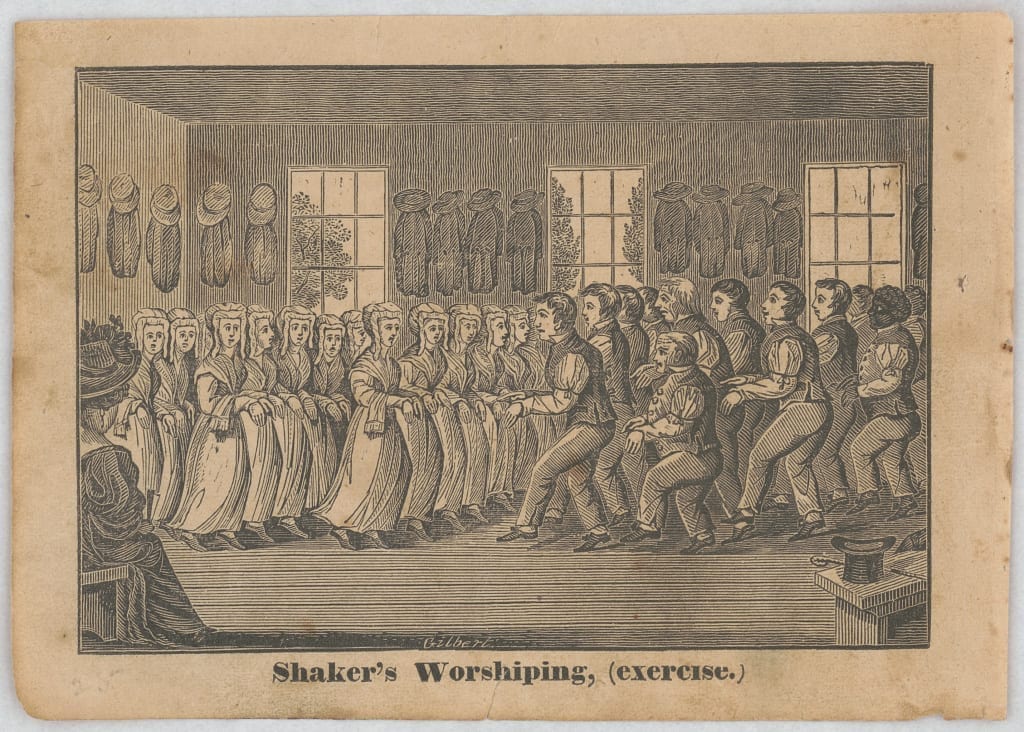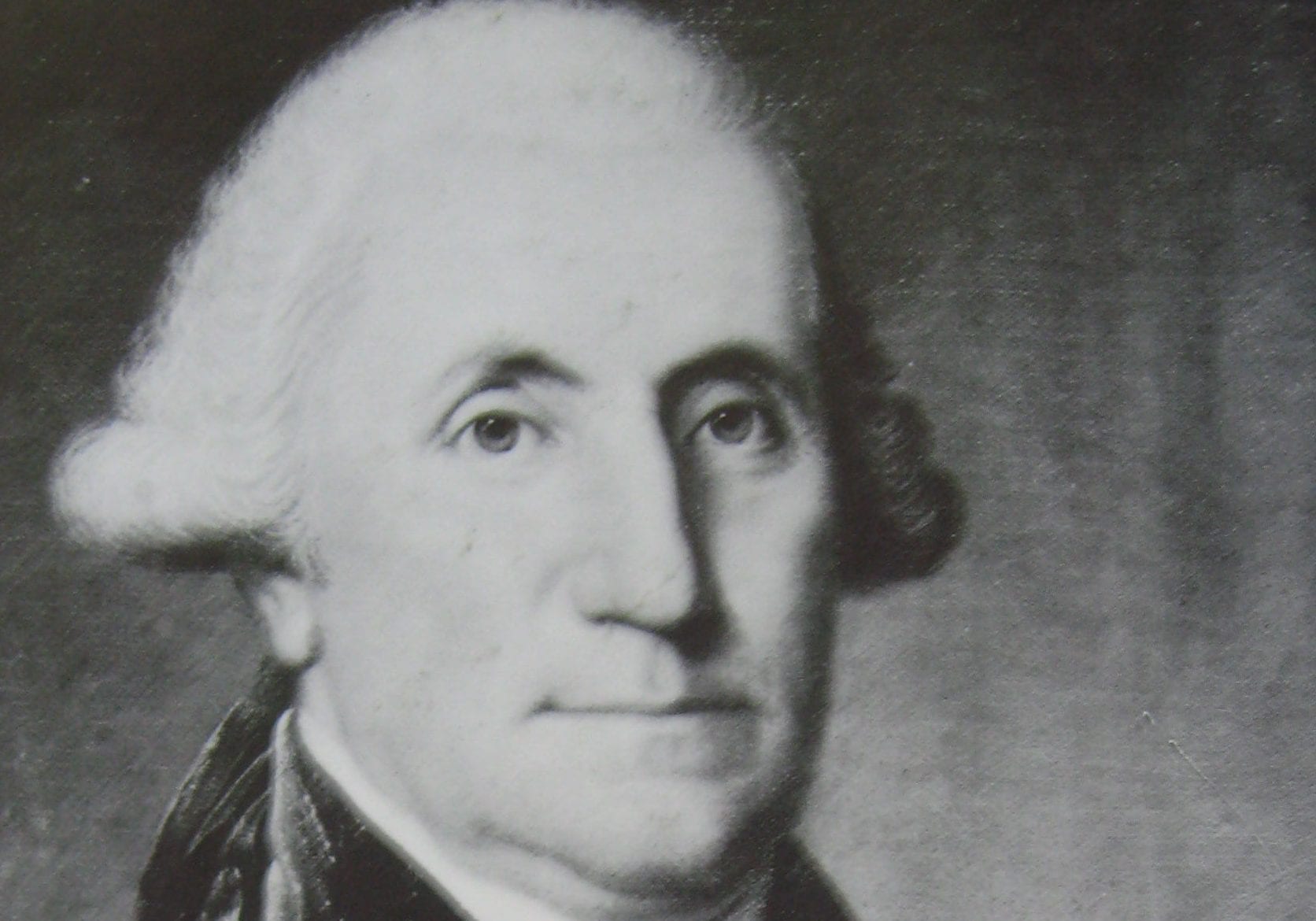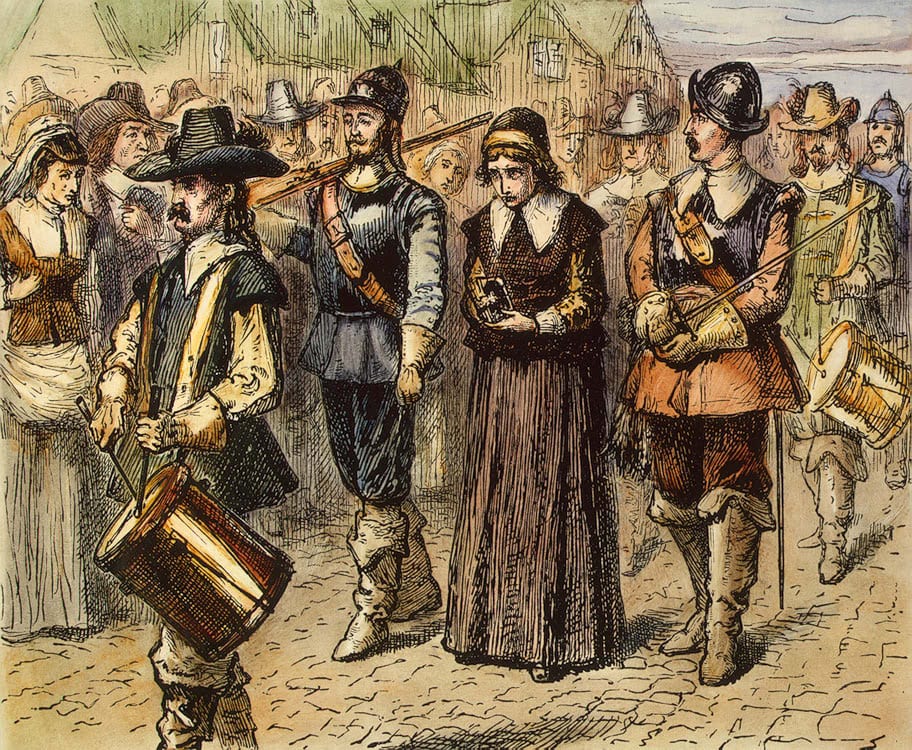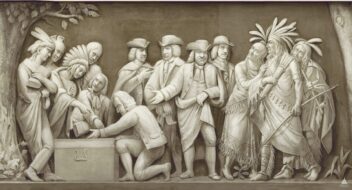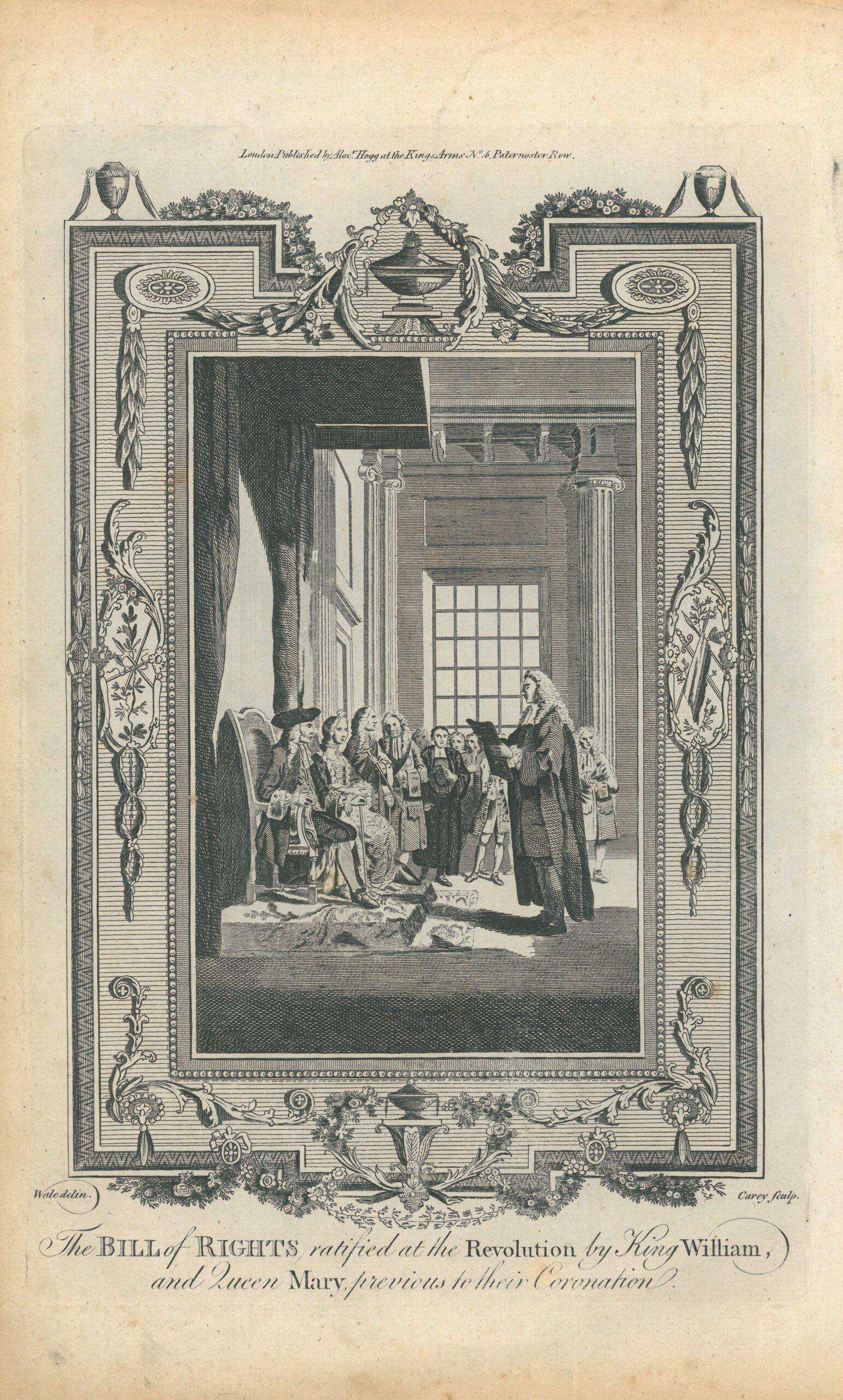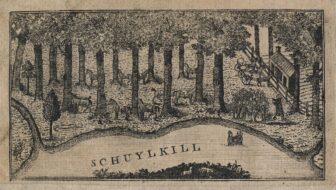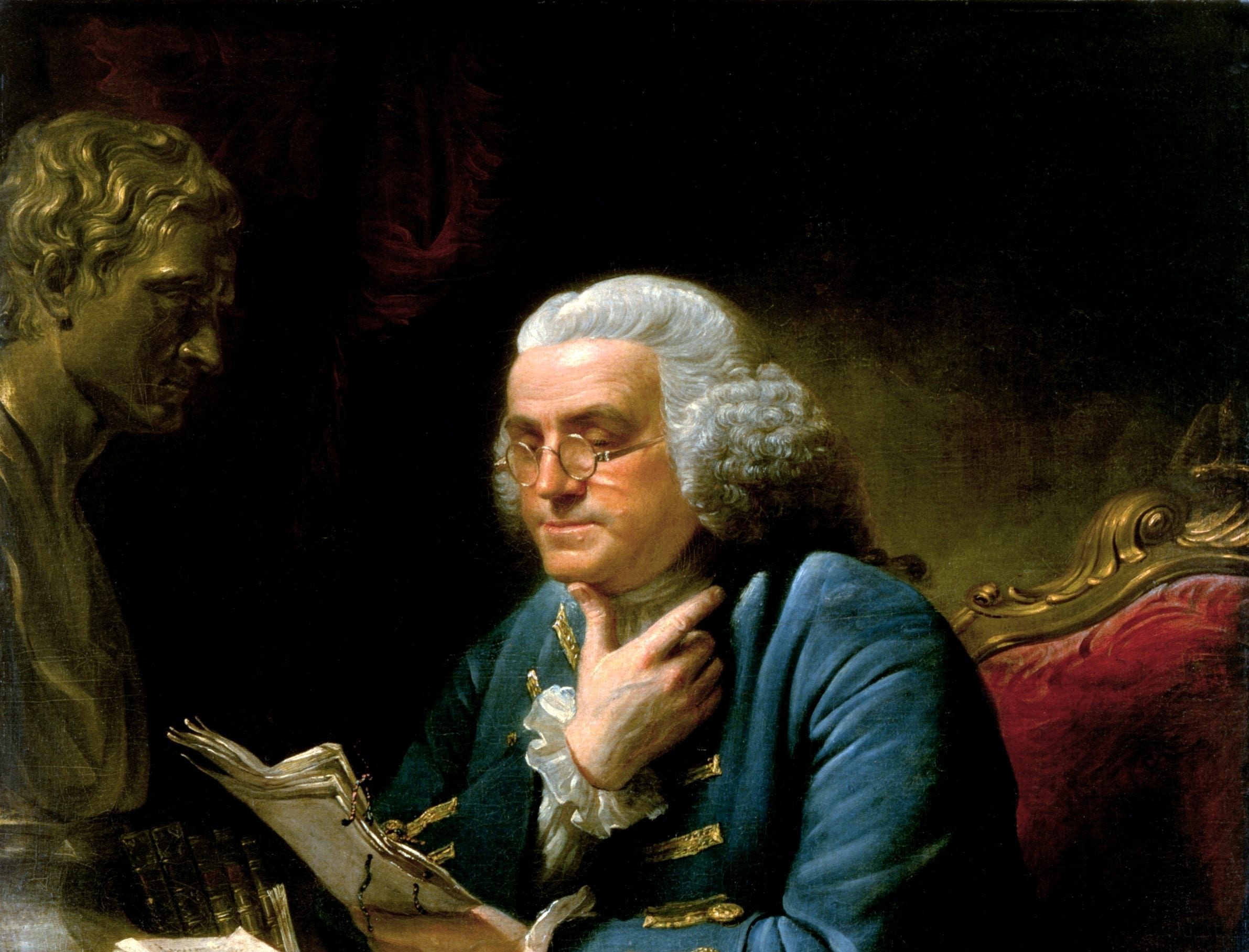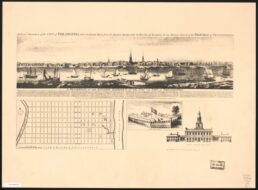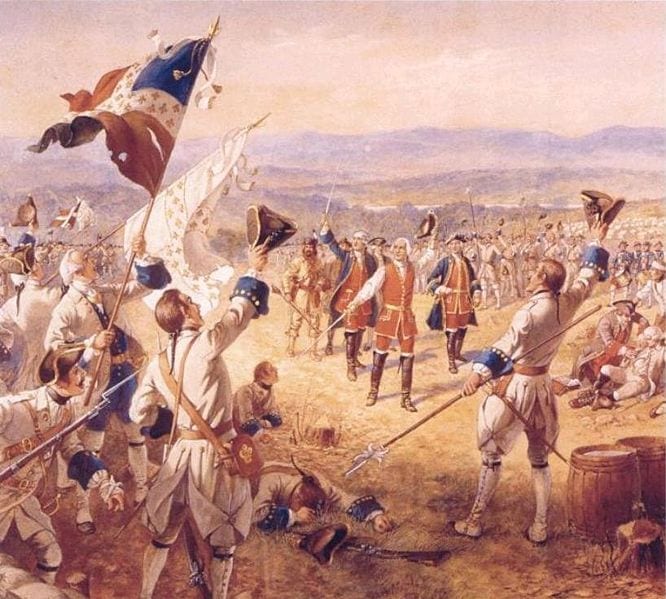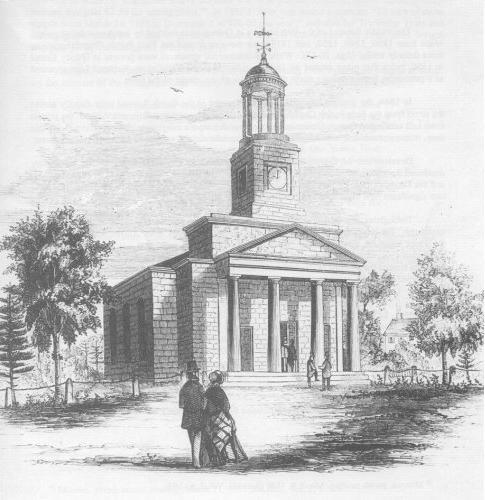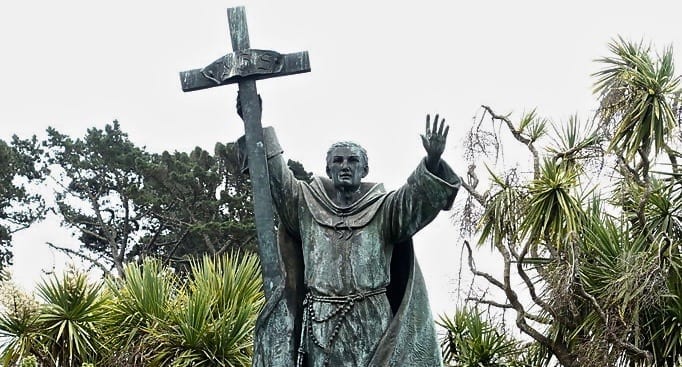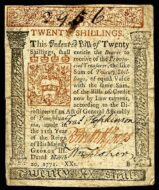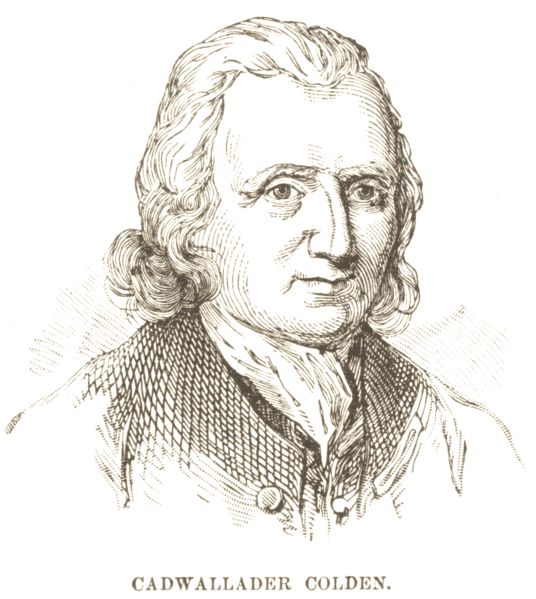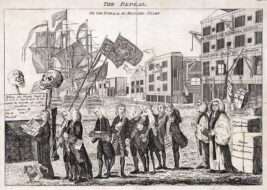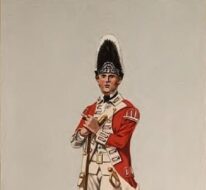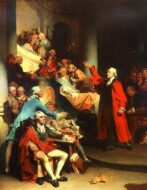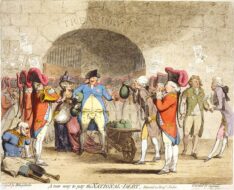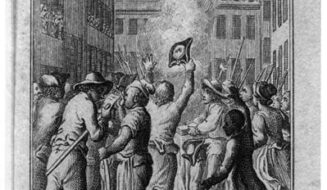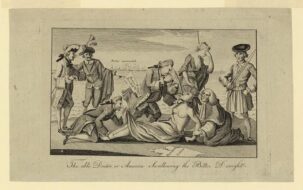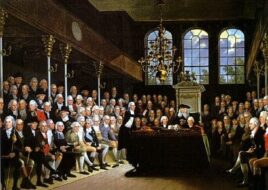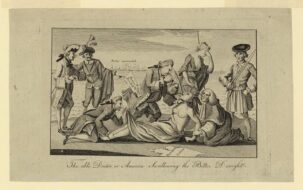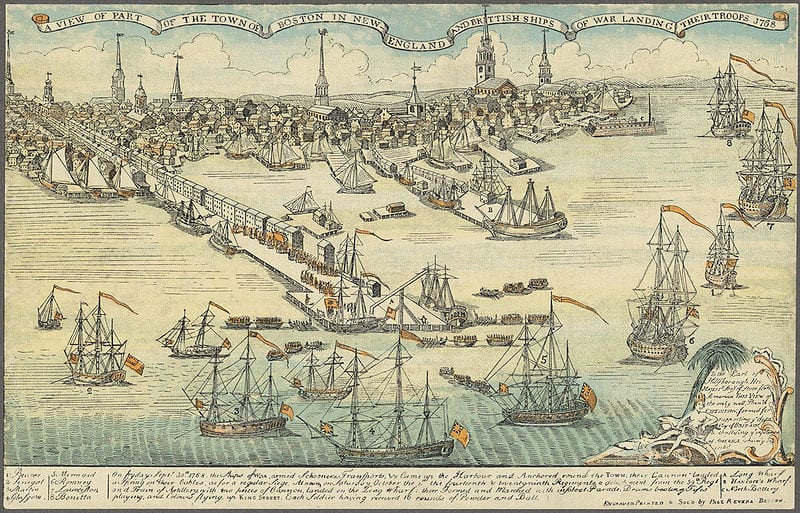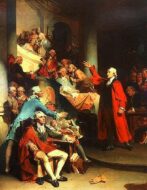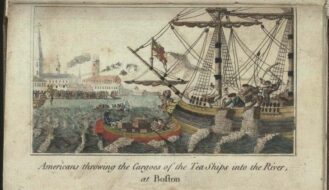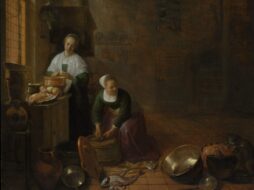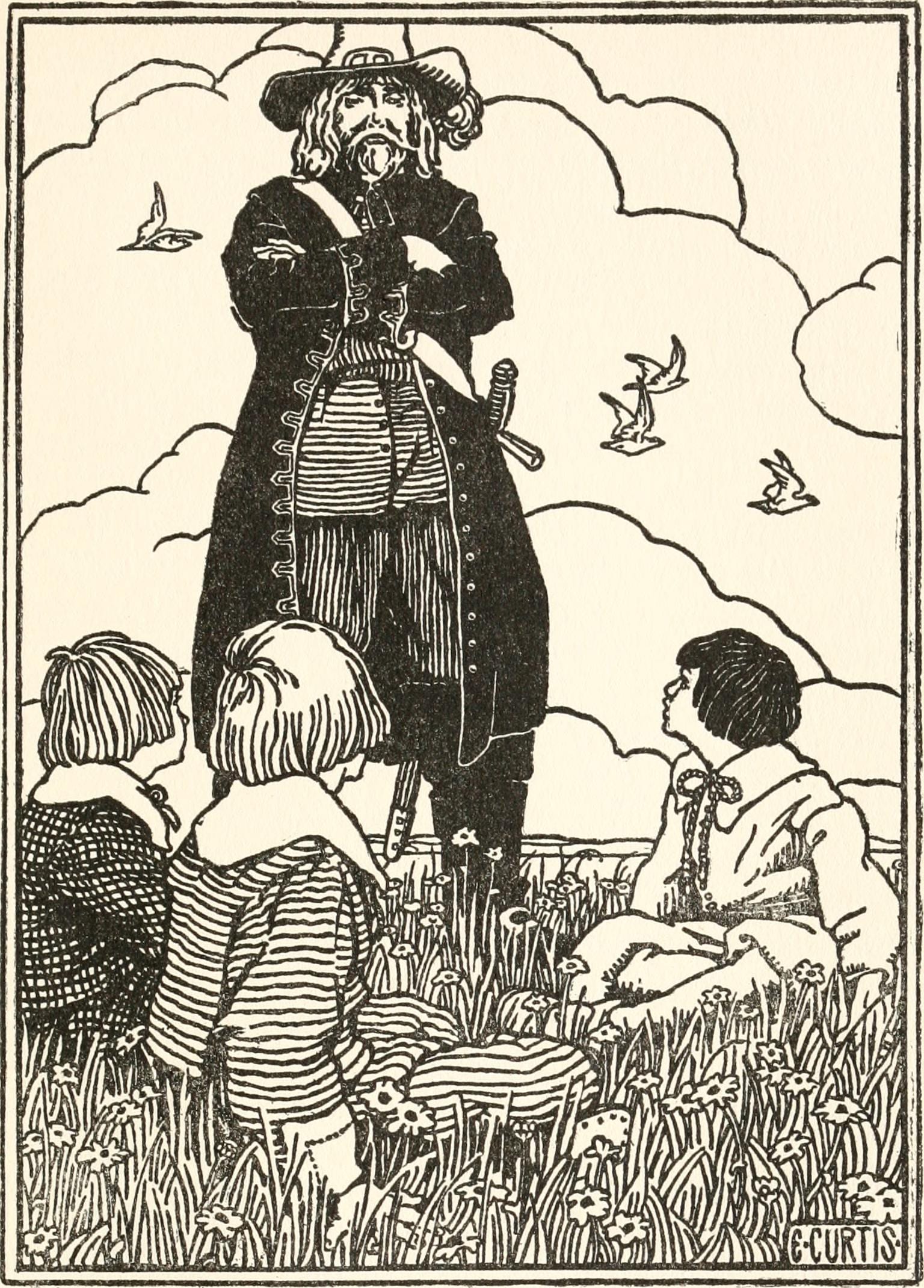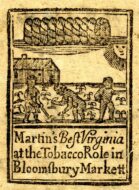
Introduction
The rejection of Joseph Galloway’s Plan of Union gave more radical members of the Continental Congress the opportunity to propose an alternative action. Rather than attempting to compromise with Great Britain, they sought to punish it with economic sanctions. Knowing that colonial boycotts and nonimportation agreements had helped pressure Parliament to repeal the Stamp Act and most of the taxes imposed through the Townshend Acts, members of the Congress voted in favor of this intercolonial Association, which would first end the importation of British goods, then their consumption, and finally all exports from the colonies to other parts of the British empire.
Throughout the colonies, local committees, which eventually included about 7,000 total members, would enforce the Association. Since many imported goods were expensive and considered luxuries, the Association helped to bridge the gap between rich and poor in America. For well-off Americans, clothing made of homespun fabrics, which replaced finer British textiles, remained fashionable symbols of resistance; colonists of more modest fortunes, for whom homespun had long been an economic necessity, now not only dressed like leaders of the colonial resistance but also joined with them in celebrating the virtue of austerity.
Source: Worthington Chauncey Ford, et al., eds., Journals of the Continental Congress, 1774–1789, 34 vols. (Washington, D.C.: Government Printing Office, 1904–37), 1:75–80. https://archive.org/details/journalsofcontin01unit/page/n97
We, his majesty’s most loyal subjects … find that the present unhappy situation of our affairs is occasioned by a ruinous system of colony administration, adopted by the British ministry about the year 1763, evidently calculated for enslaving these colonies, and, with them, the British empire. In prosecution of which system, various acts of Parliament have been passed, for raising a revenue in America, for depriving the American subjects, in many instances, of the constitutional trial by jury, exposing their lives to danger, by directing a new and illegal trial beyond the seas, for crimes alleged to have been committed in America; and in prosecution of the same system, several late, cruel, and oppressive acts have been passed, respecting the town of Boston and the Massachusetts Bay [colony], and also an act for extending the province of Quebec, so as to border on the western frontiers of these colonies, establishing an arbitrary government therein, and discouraging the settlement of British subjects in that wide extended country; thus, by the influence of civil principles and ancient prejudices, to dispose the inhabitants to act with hostility against the free Protestant colonies, whenever a wicked ministry shall choose so to direct them.
To obtain redress of these grievances, which threaten destruction to the lives, liberty, and property of his majesty’s subjects, in North America, we are of opinion, that a non-importation, non-consumption, and non-exportation agreement, faithfully adhered to, will prove the most speedy, effectual, and peaceable measure; and, therefore, we do, for ourselves, and the inhabitants of the several colonies, whom we represent, firmly agree and associate, under the sacred ties of virtue, honor, and love of our country, as follows:
- That from and after the first day of December next, we will not import, into British America, from Great Britain or Ireland, any goods, wares, or merchandise whatsoever, or from any other place, any such goods, wares, or merchandise, as shall have been exported from Great Britain or Ireland; nor will we, after that day, import any East India tea from any part of the world; nor any molasses, syrups, paneles,[1] coffee, or pimento, from the British plantations or from Dominica; nor wines from Madeira, or the Western Islands; nor foreign indigo.
- We will neither import nor purchase, any slave imported after the first day of December next; after which time, we will wholly discontinue the slave trade, and will neither be concerned in it ourselves, nor will we hire our vessels, nor sell our commodities or manufactures to those who are concerned in it.
- As a non-consumption agreement, strictly adhered to, will be an effectual security for the observation of the non-importation, we, as above, solemnly agree and associate, that, from this day, we will not purchase or use any tea, imported on account of the East India company, or any on which a duty hath been or shall be paid; and from and after the first day of March next, we will not purchase or use any East India tea whatever; nor will we, nor shall any person for or under us, purchase or use any of those goods, wares, or merchandise, we have agreed not to import, which we shall know, or have cause to suspect, were imported after the first day of December, except such as come under the rules and directions of the tenth article hereafter mentioned.
- The earnest desire we have, not to injure our fellow subjects in Great Britain, Ireland, or the West Indies, induces us to suspend a non-exportation, until the tenth day of September, 1775; at which time, if the said acts and parts of acts of the British parliament herein after mentioned are not repealed, we will not, directly or indirectly, export any merchandise or commodity whatsoever to Great Britain, Ireland, or the West Indies, except rice to Europe.
- Such as are merchants, and use the British and Irish trade, will give orders, as soon as possible, to their factors, agents, and correspondents in Great Britain and Ireland, not to ship any goods to them, on any pretense whatsoever, as they cannot be received in America; and if any merchant, residing in Great Britain or Ireland, shall directly or indirectly ship any goods, wares, or merchandise, for America, in order to break the said non-importation agreement, or in any manner contravene the same, on such unworthy conduct being well attested, it ought to be made public; and, on the same being so done, we will not, from thenceforth, have any commercial connection with such merchant.
- That such as are owners of vessels will give positive orders to their captains, or masters, not to receive on board their vessels any goods prohibited by the said non-importation agreement, on pain of immediate dismissal from their service.
- We will use our utmost endeavors to improve the breed of sheep, and increase their number to the greatest extent; and to that end, we will kill them as seldom as may be, especially those of the most profitable kind; nor will we export any to the West Indies or elsewhere; and those of us, who are or may become overstocked with or can conveniently spare any sheep, will dispose of them to our neighbors, especially to the poorer sort, on moderate terms.
- We will, in our several stations, encourage frugality, economy, and industry, and promote agriculture, arts, and the manufactures of this country, especially that of wool; and will discountenance and discourage every species of extravagance and dissipation, especially all horseracing, and all kinds of gaming, cockfighting, exhibition of shows, plays, and other expensive diversions and entertainments; and on the death of any relation or friend, none of us, or any of our families, will go into any further mourning dress, than a black crape or ribbon on the arm or hat, for gentlemen, and a black ribbon and necklace for ladies, and we will discontinue the giving of gloves and scarves at funerals.
- Such as are venders of goods or merchandise will not take advantage of the scarcity of goods that may be occasioned by this association, but will sell the same at the rates we have been respectively accustomed to do, for twelve months last past. And if any vender of goods or merchandise shall sell any such goods on higher terms, or shall, in any manner, or by any device whatsoever violate or depart from this agreement, no person ought, nor will any of us deal with any such person, or his or her factor or agent, at any time thereafter, for any commodity whatever.
- In case any merchant, trader, or other person, shall import any goods or merchandise, after the first day of December, and before the first day of February next, the same ought forthwith, at the election of the owner, to be either reshipped or delivered up to the committee of the county or town, wherein they shall be imported, to be stored at the risk of the importer, until the non-importation agreement shall cease, or be sold under the direction of the committee aforesaid; and in the last mentioned case, the owner or owners of such goods shall be reimbursed out of the sales, the first cost and charges, the profit, if any, to be applied towards relieving and employing such poor inhabitants of the town of Boston, as are immediate sufferers by the Boston port bill….
- That a committee be chosen in every county, city, and town, by those who are qualified to vote for representatives in the legislature, whose business it shall be attentively to observe the conduct of all persons touching this association; and when it shall be made to appear, to the satisfaction of a majority of any such committee, that any person within the limits of their appointment has violated this association, that such majority do forthwith cause the truth of the case to be published in the gazette; to the end, that all such foes to the rights of British America may be publicly known, and universally contemned[2] as the enemies of American liberty; and thenceforth we respectively will break off all dealings with him or her.
- That the committee of correspondence, in the respective colonies, do frequently inspect the entries of their customhouses, and inform each other, from time to time, of the true state thereof, and of every other material circumstance that may occur relative to this association.
- That all manufactures of this country be sold at reasonable prices, so that no undue advantage be taken of a future scarcity of goods.
- And we do further agree and resolve, that we will have no trade, commerce, dealings, or intercourse whatsoever, with any colony or province, in North America, which shall not accede to, or which shall hereafter violate this association, but will hold them as unworthy of the rights of freemen, and as inimical to the liberties of their country.
And we do solemnly bind ourselves and our constituents, under the ties aforesaid, to adhere to this association, until such parts of the several acts of Parliament passed since the close of the last war … are repealed…. And we recommend it to the provincial conventions, and to the committees in the respective colonies, to establish such farther regulations as they may think proper, for carrying into execution this association.

Conversation-based seminars for collegial PD, one-day and multi-day seminars, graduate credit seminars (MA degree), online and in-person.
